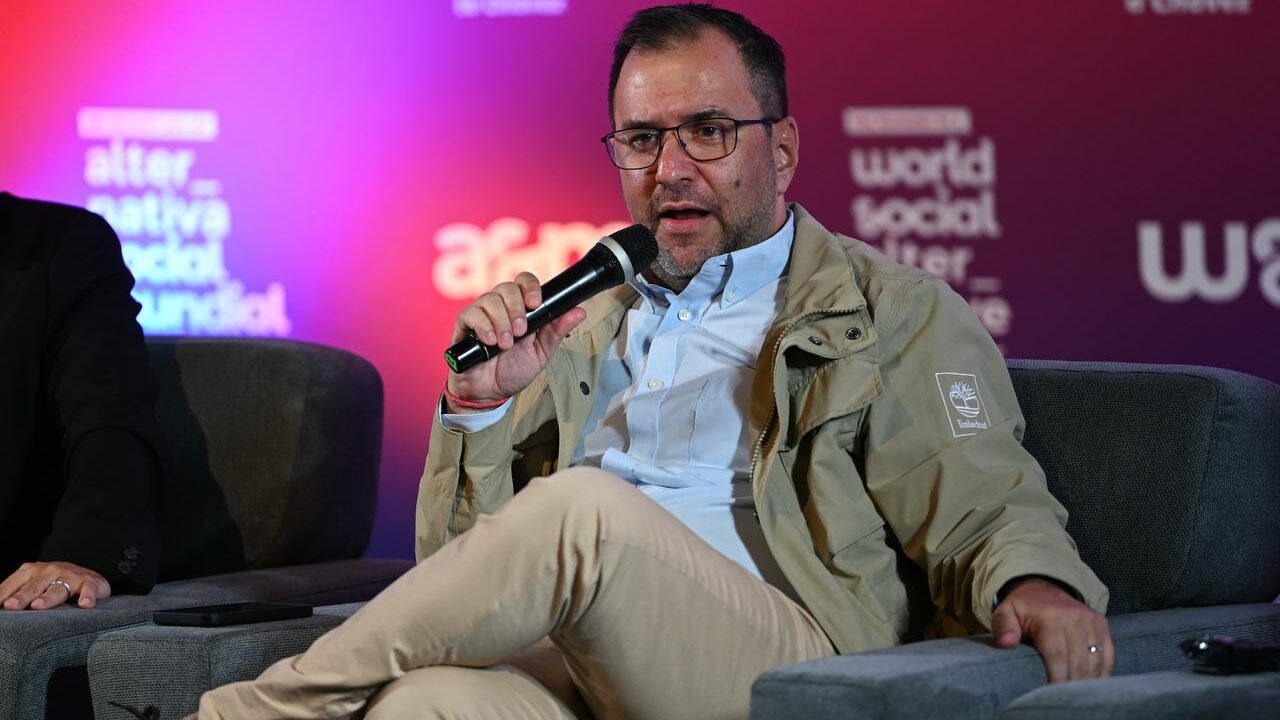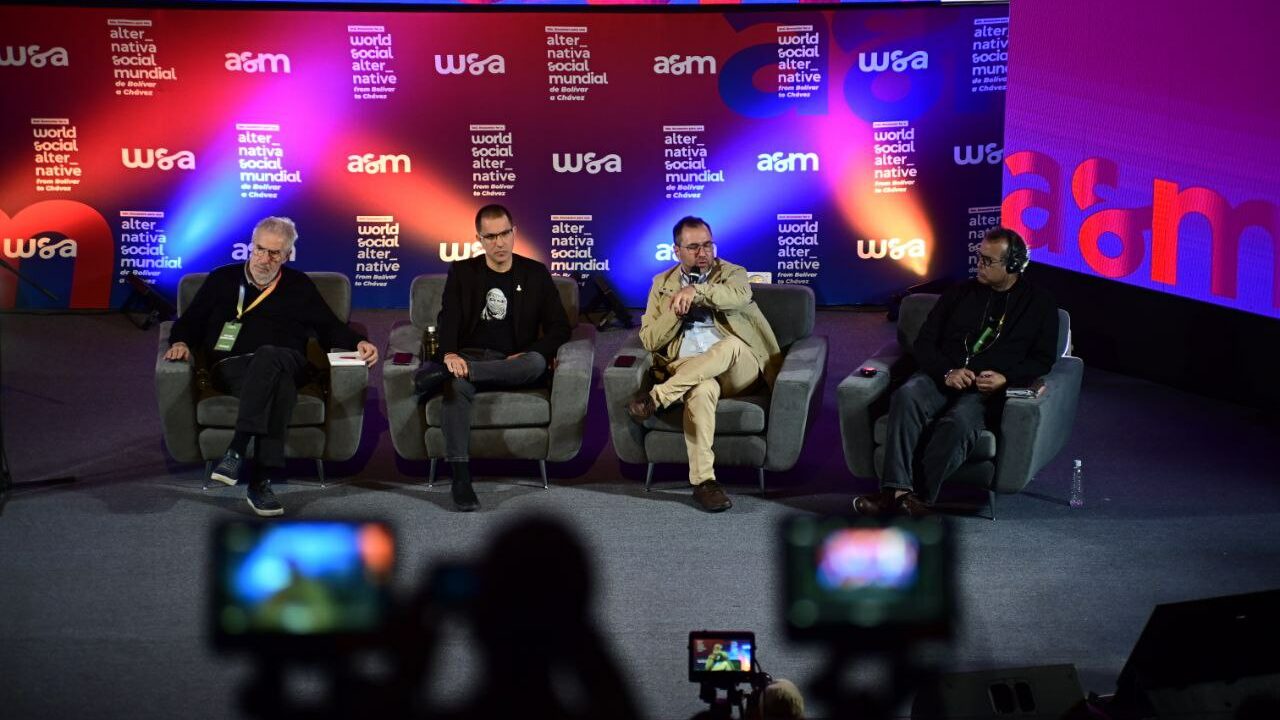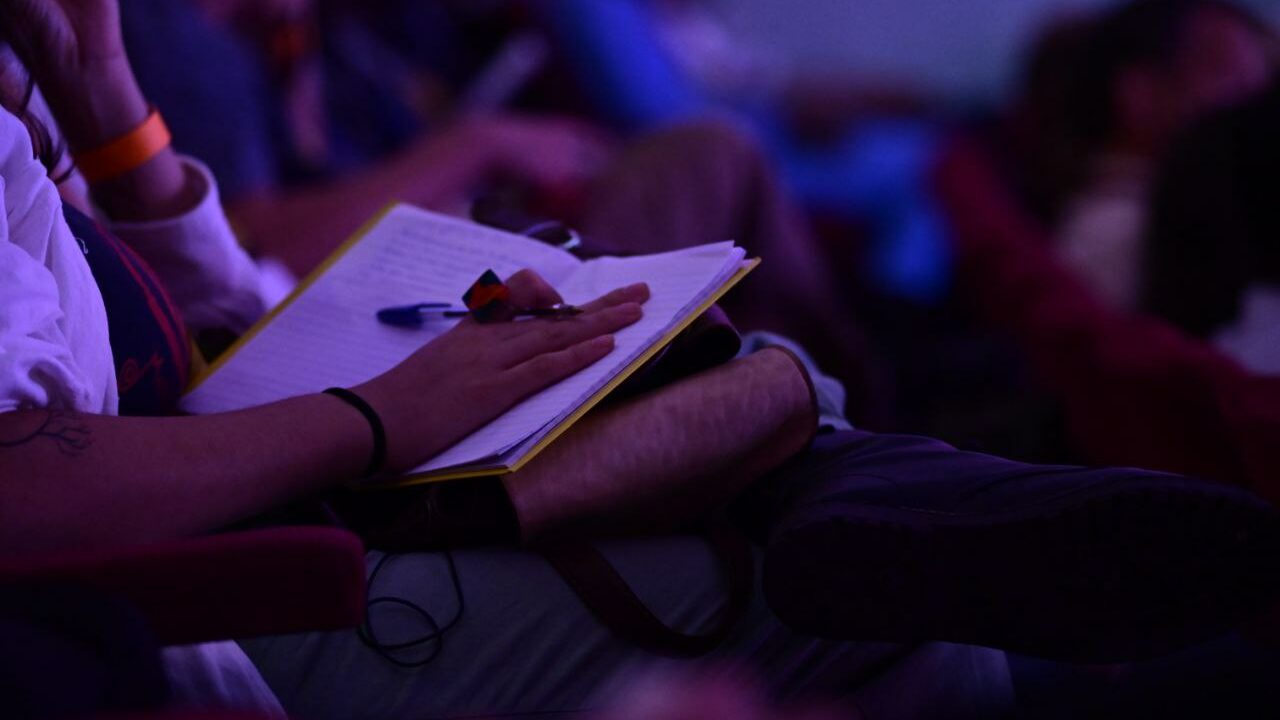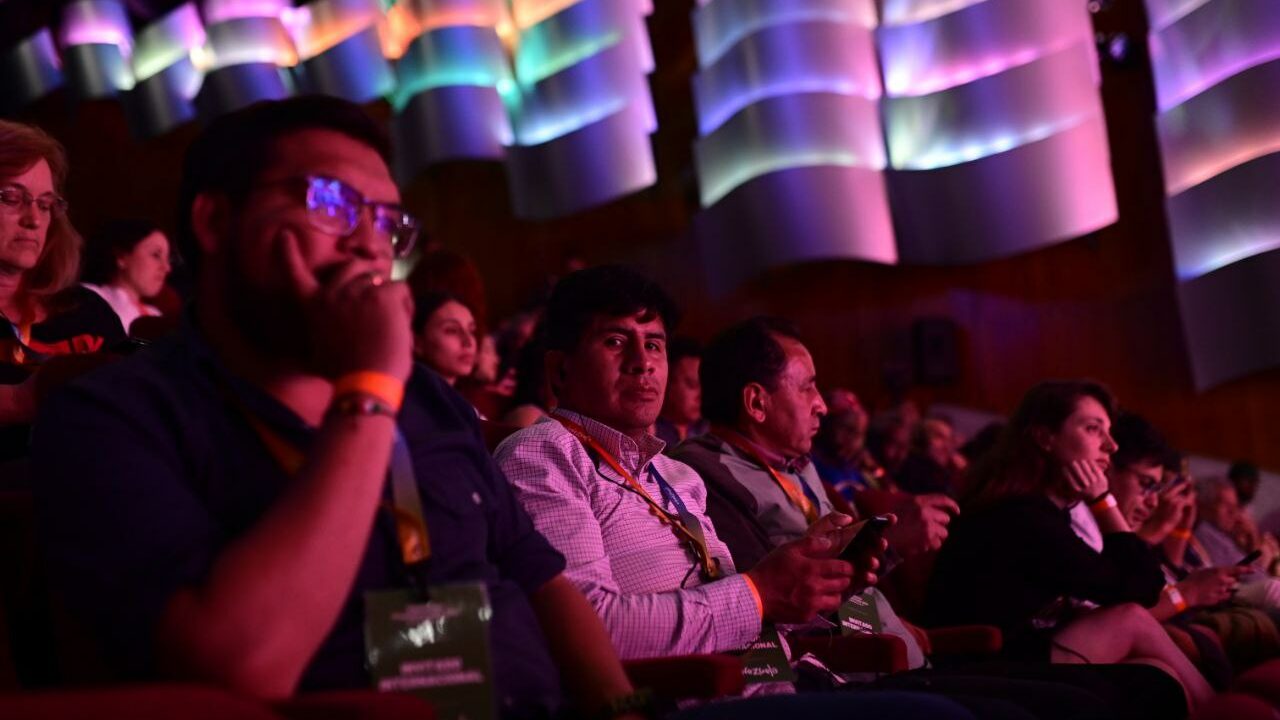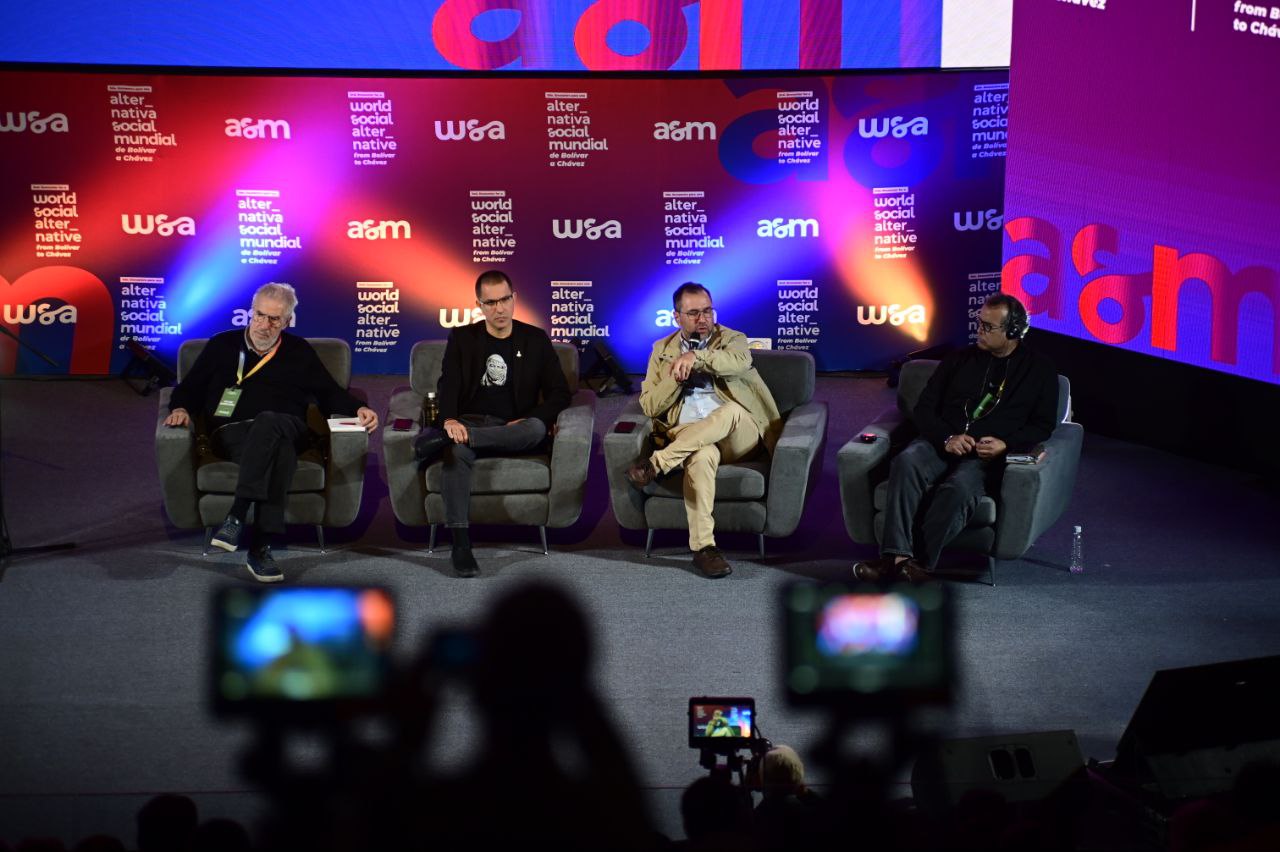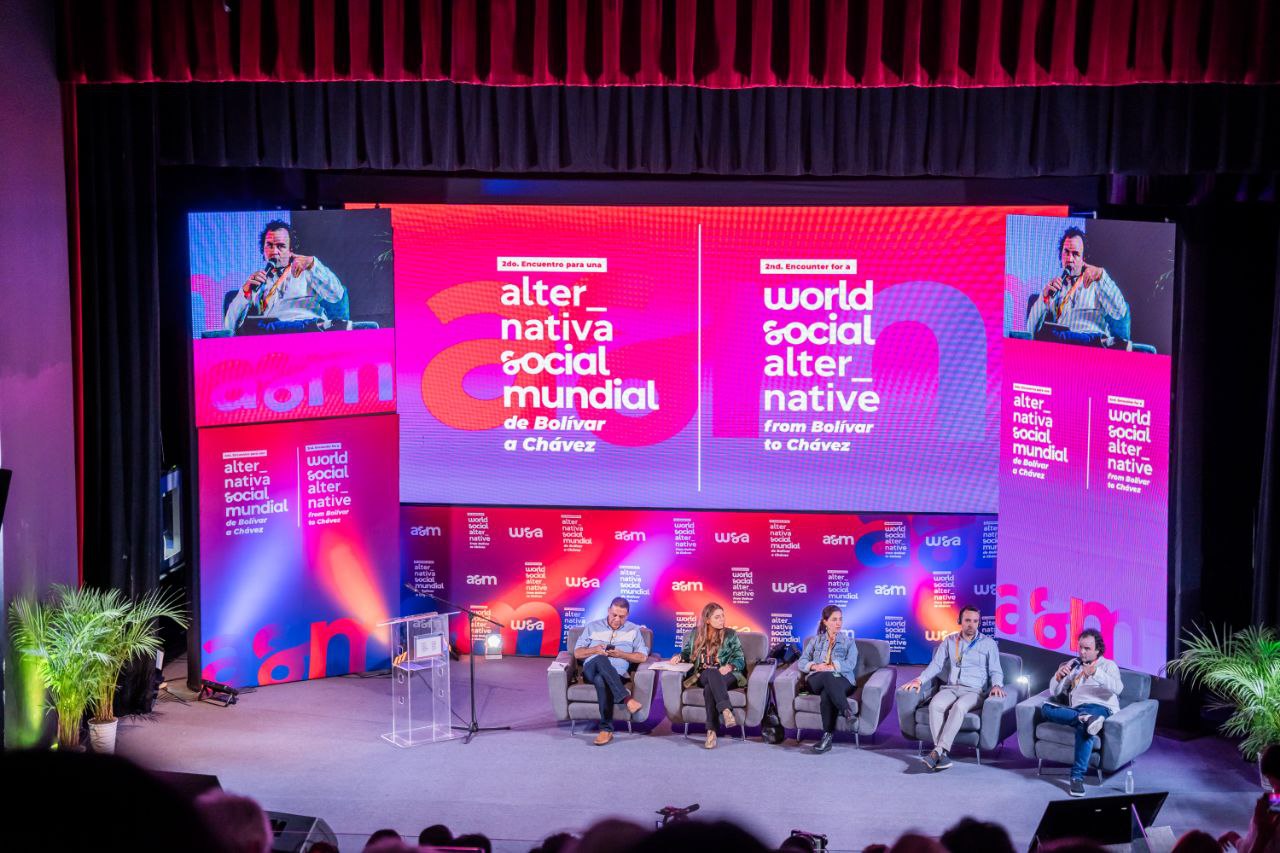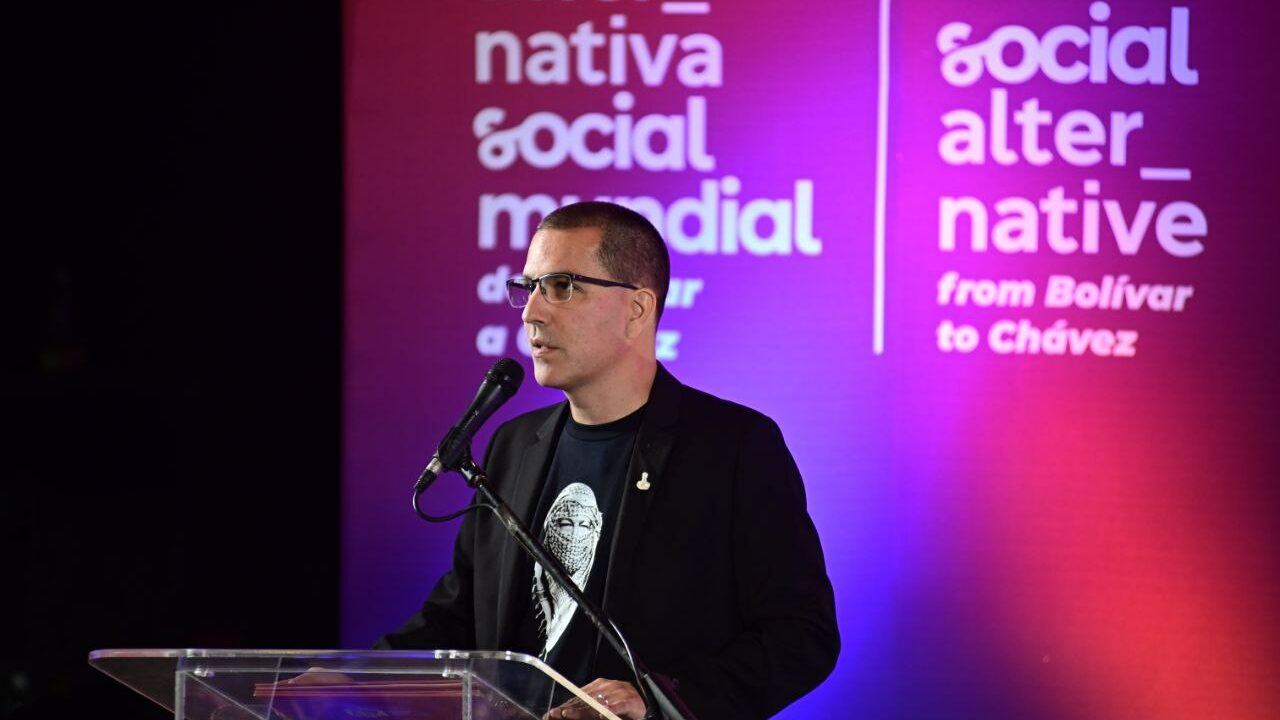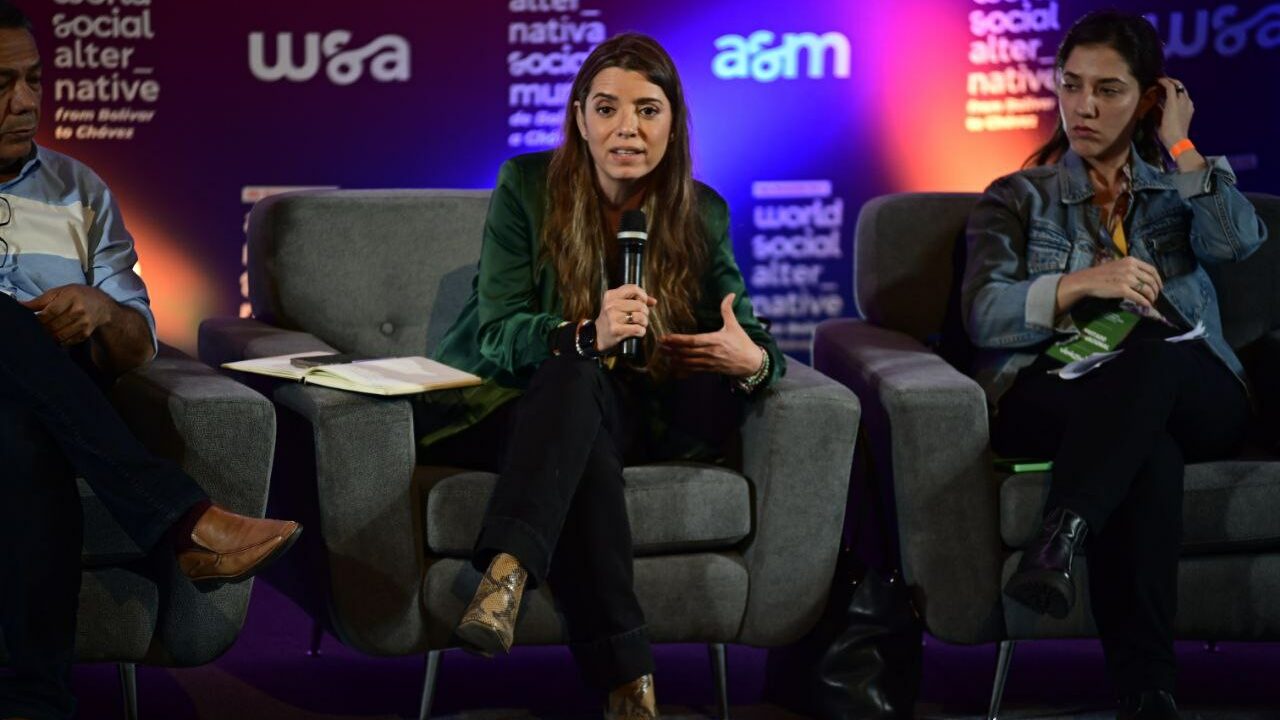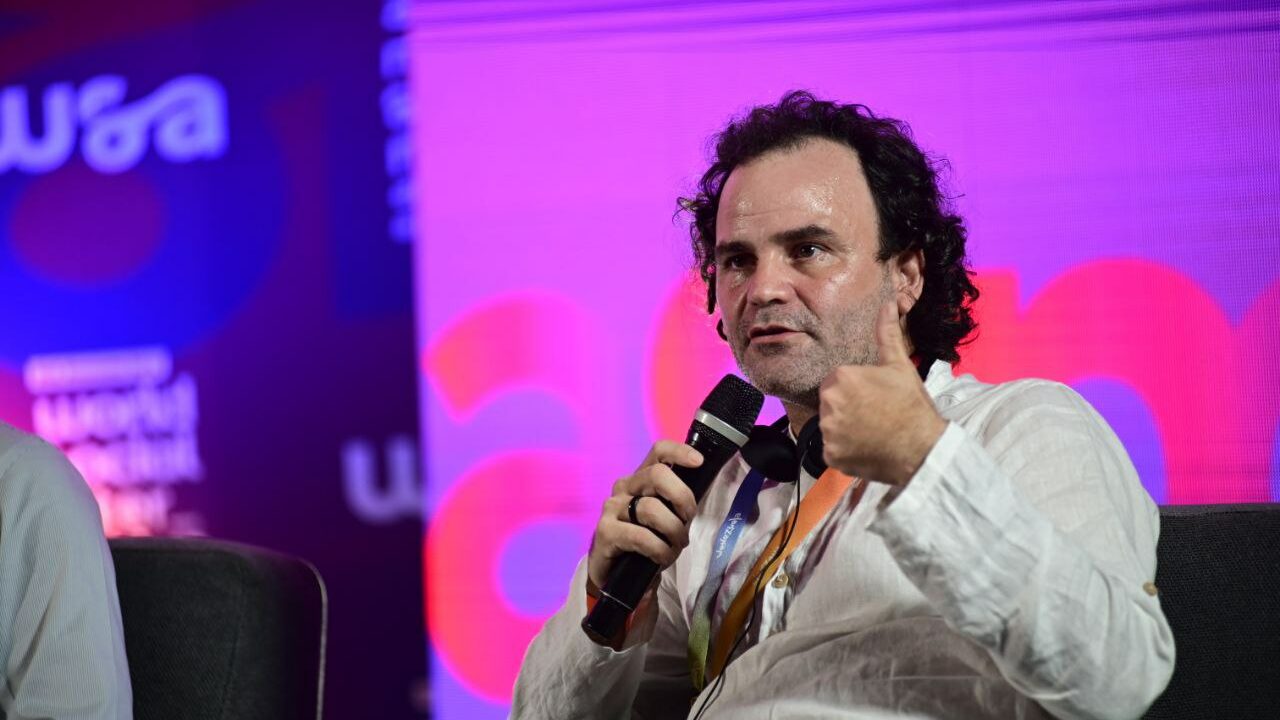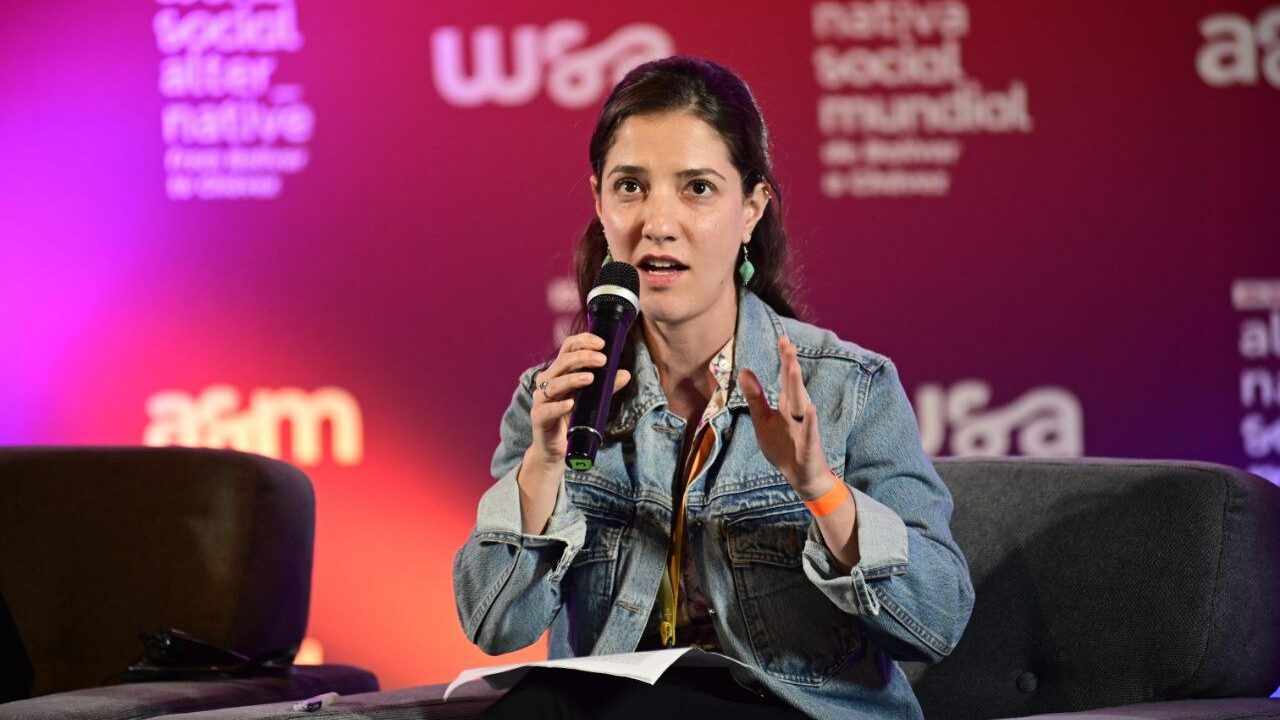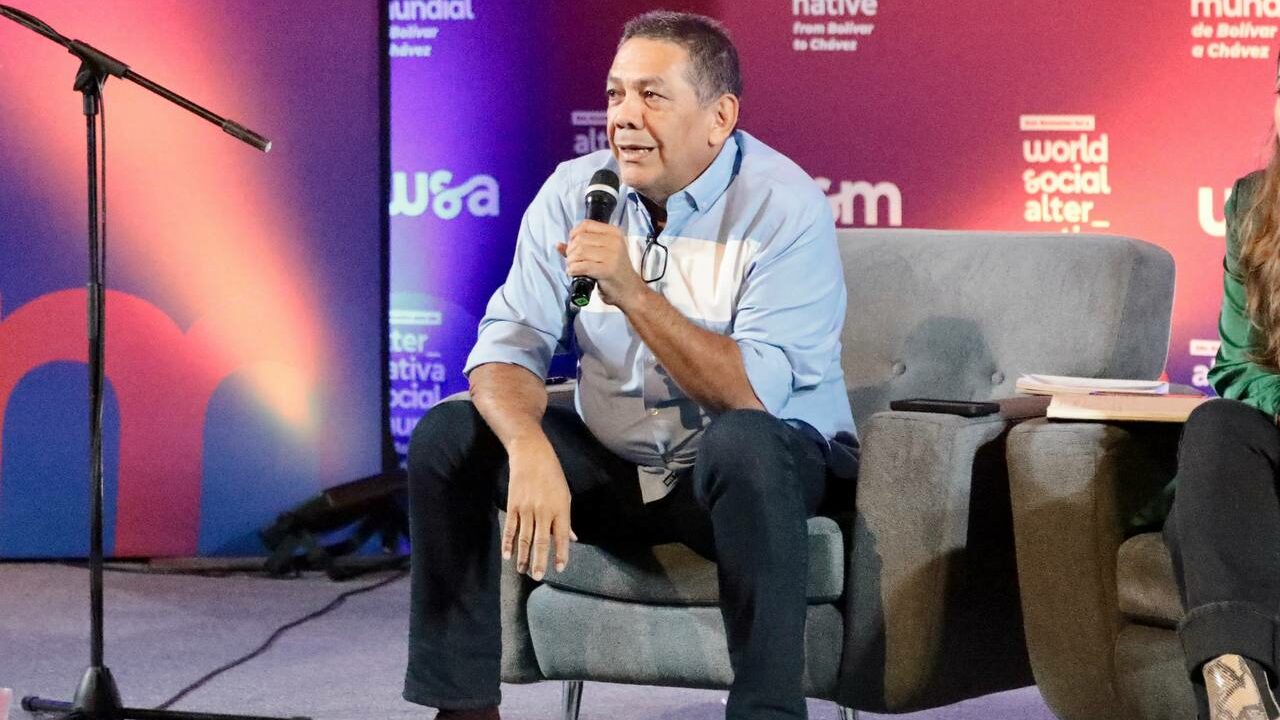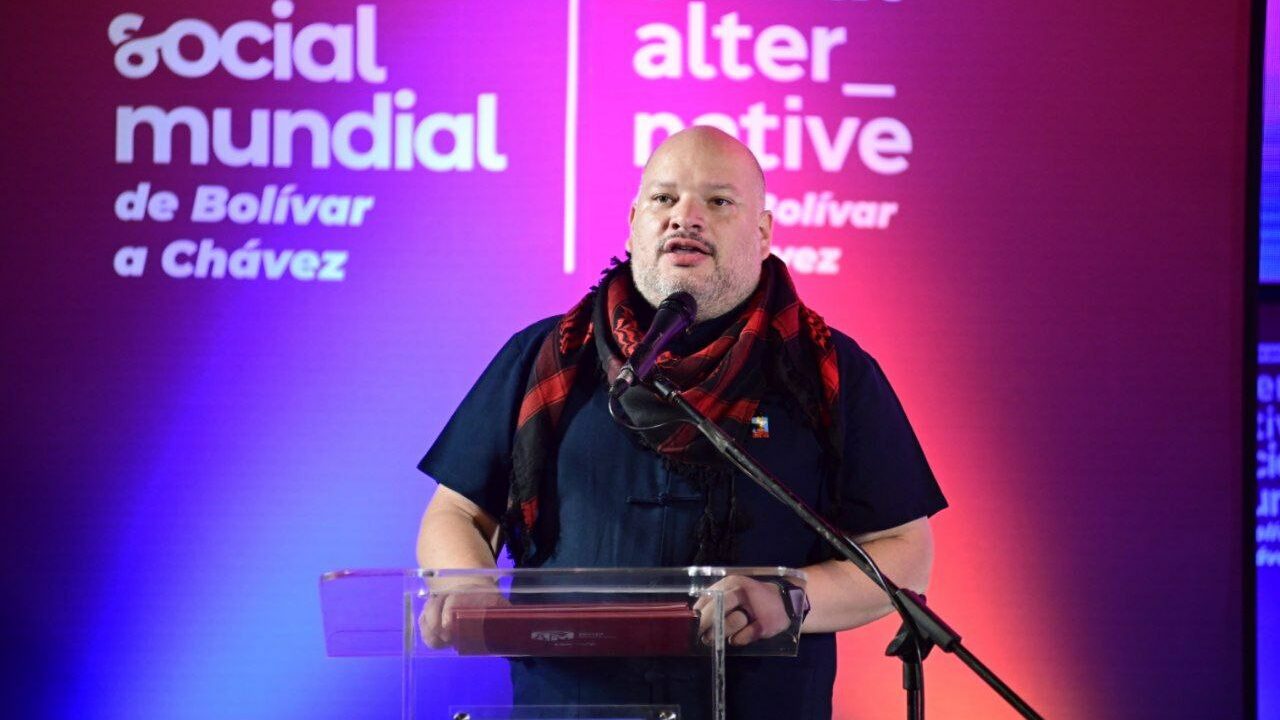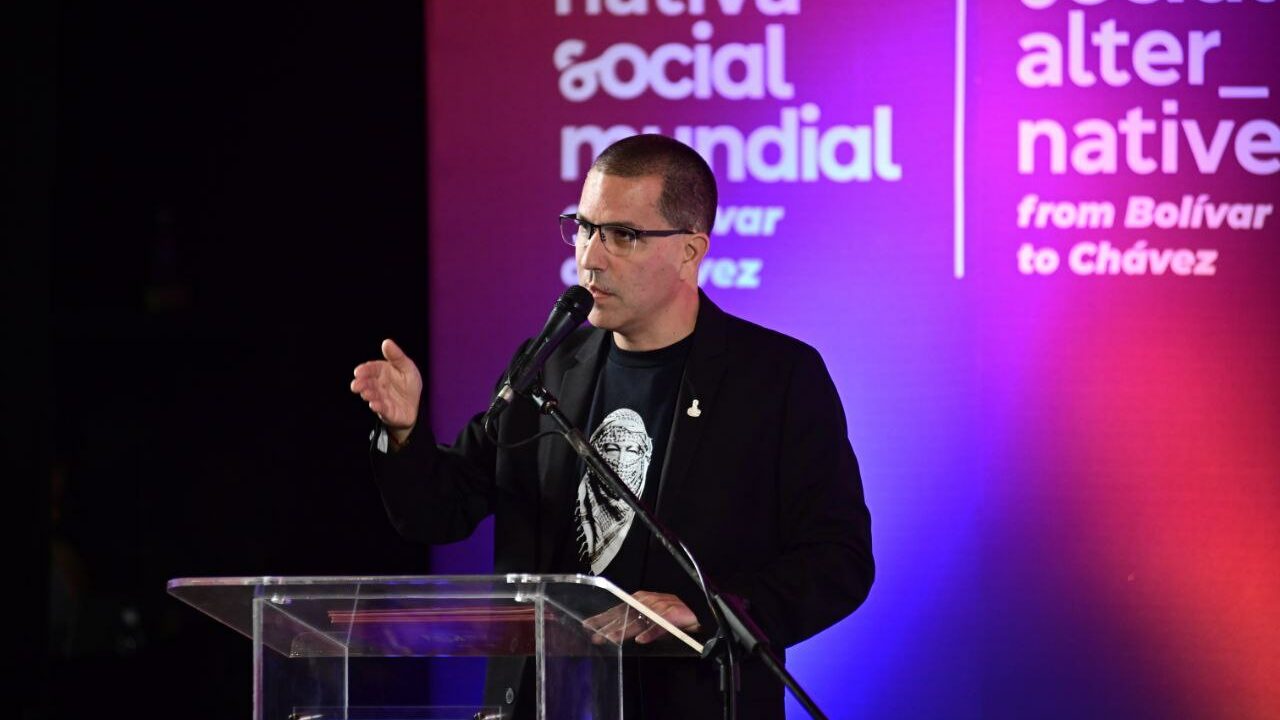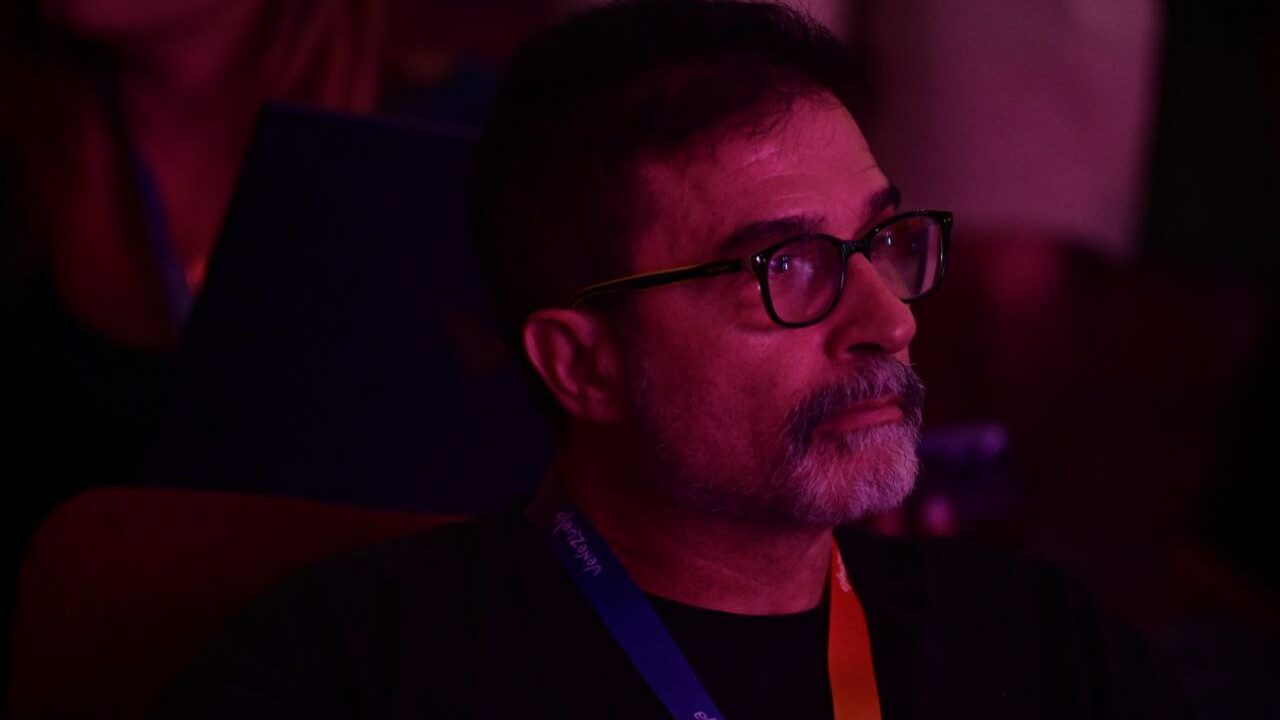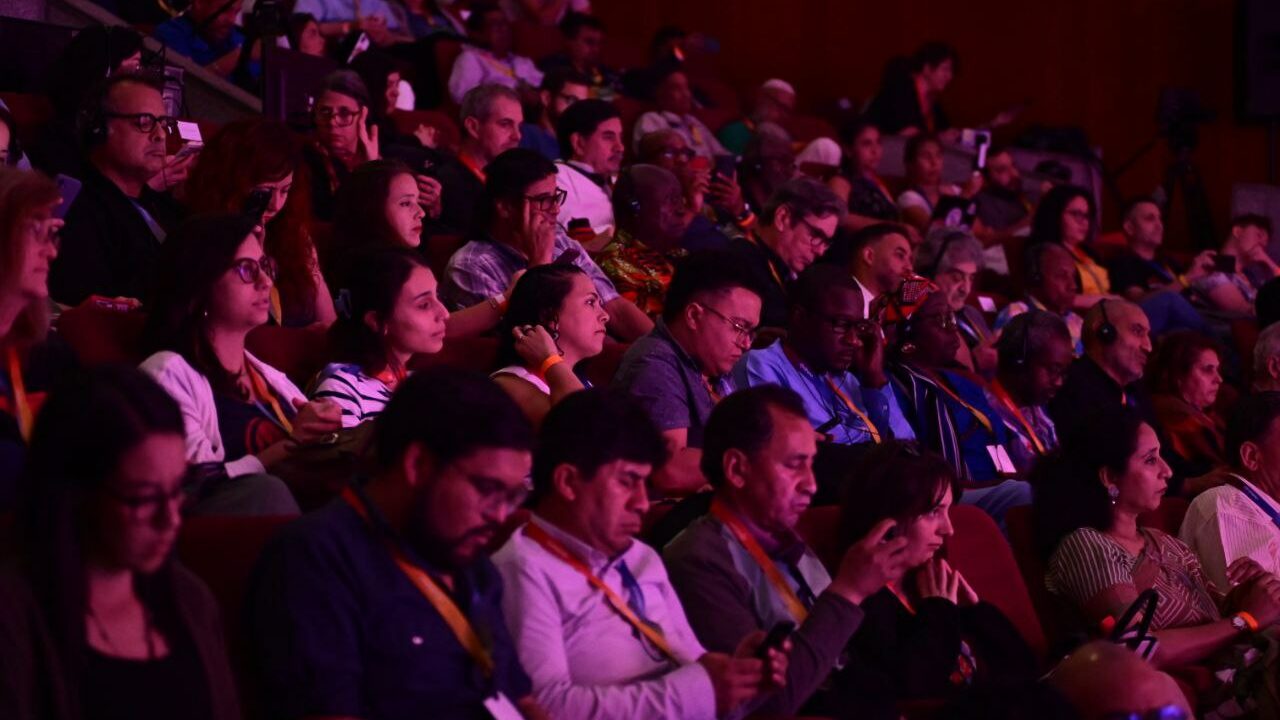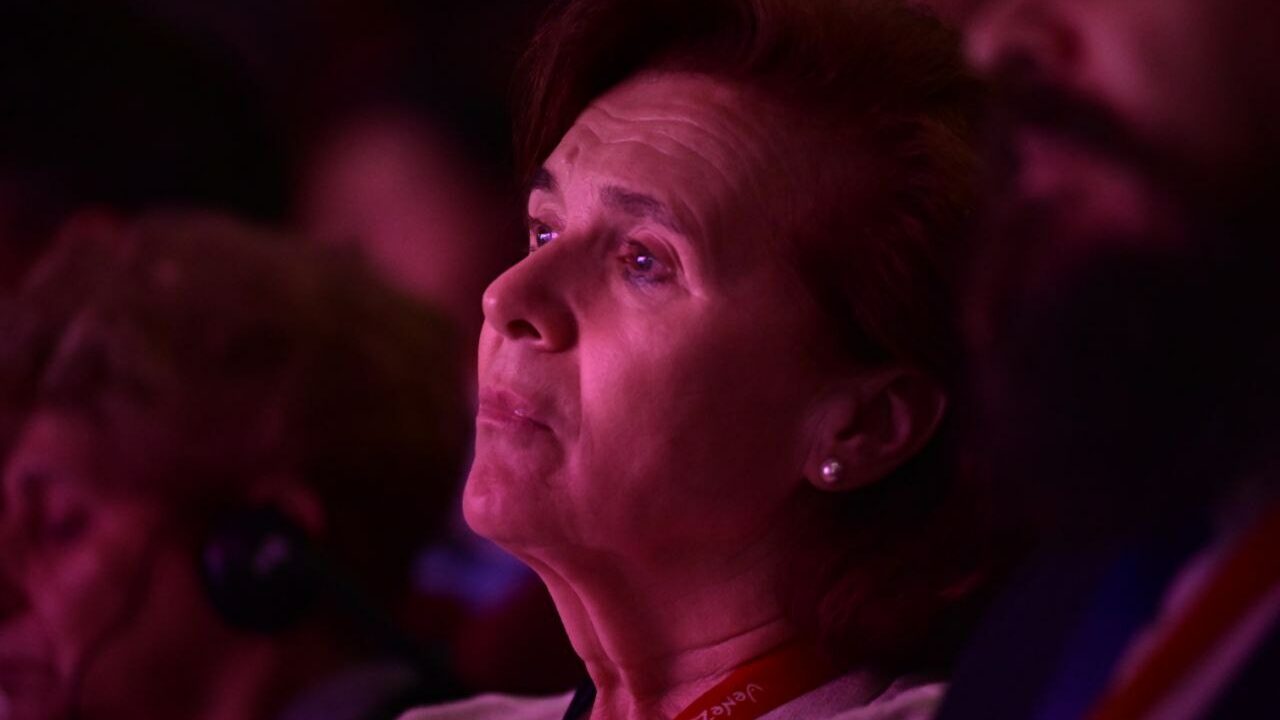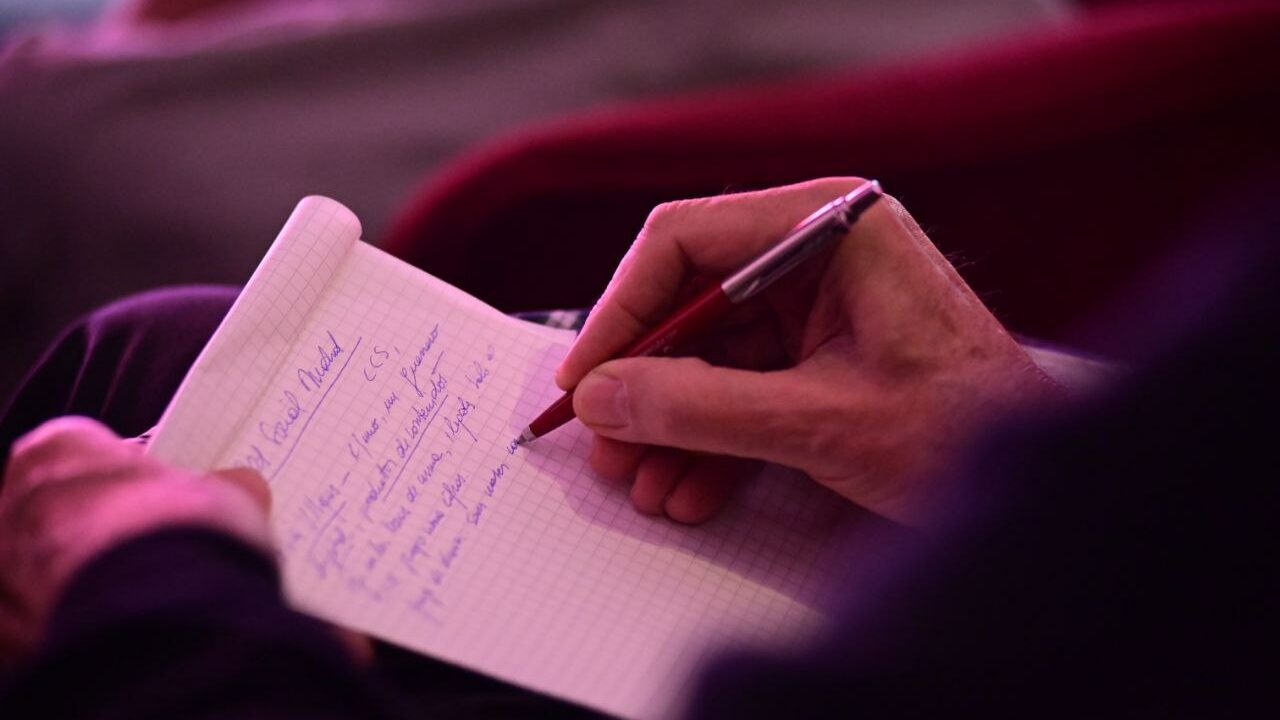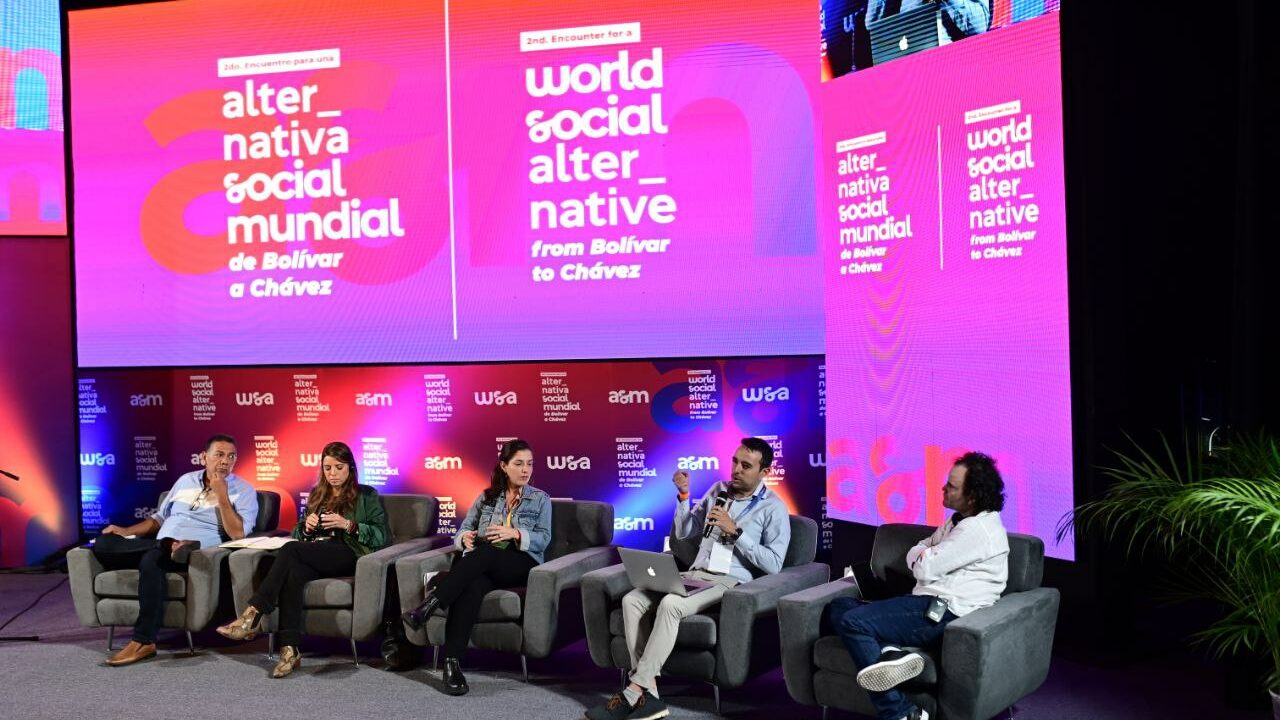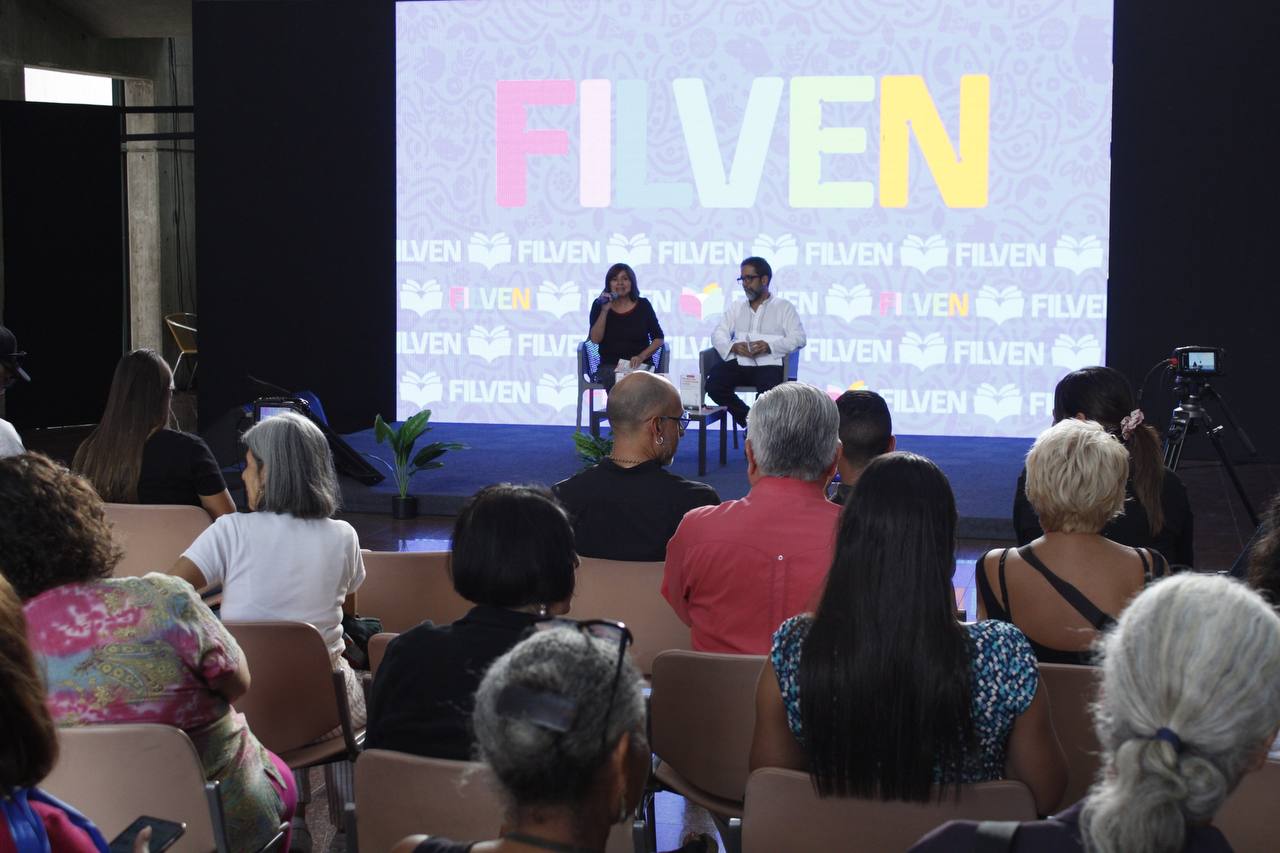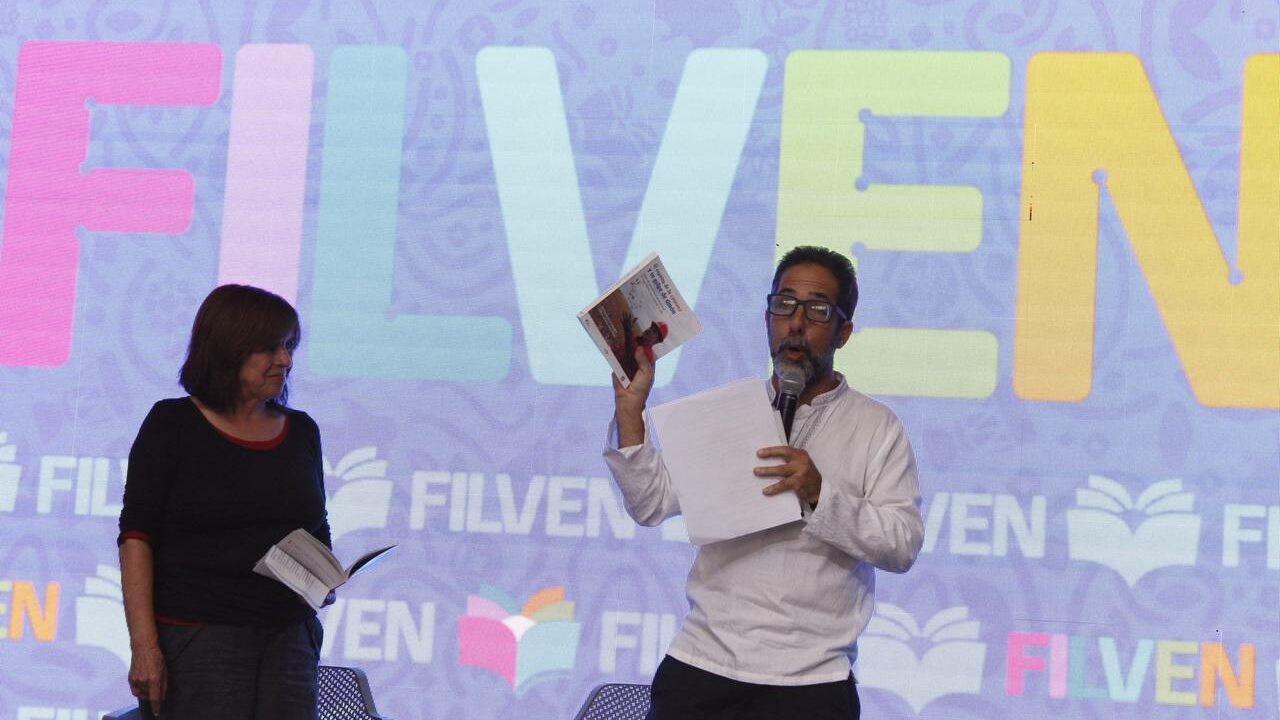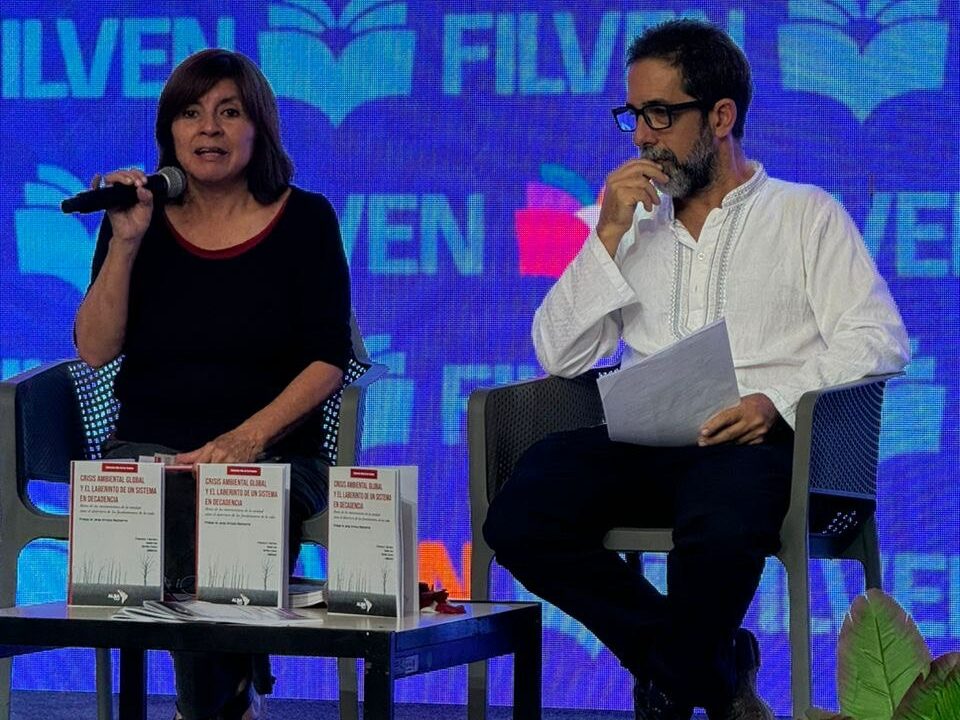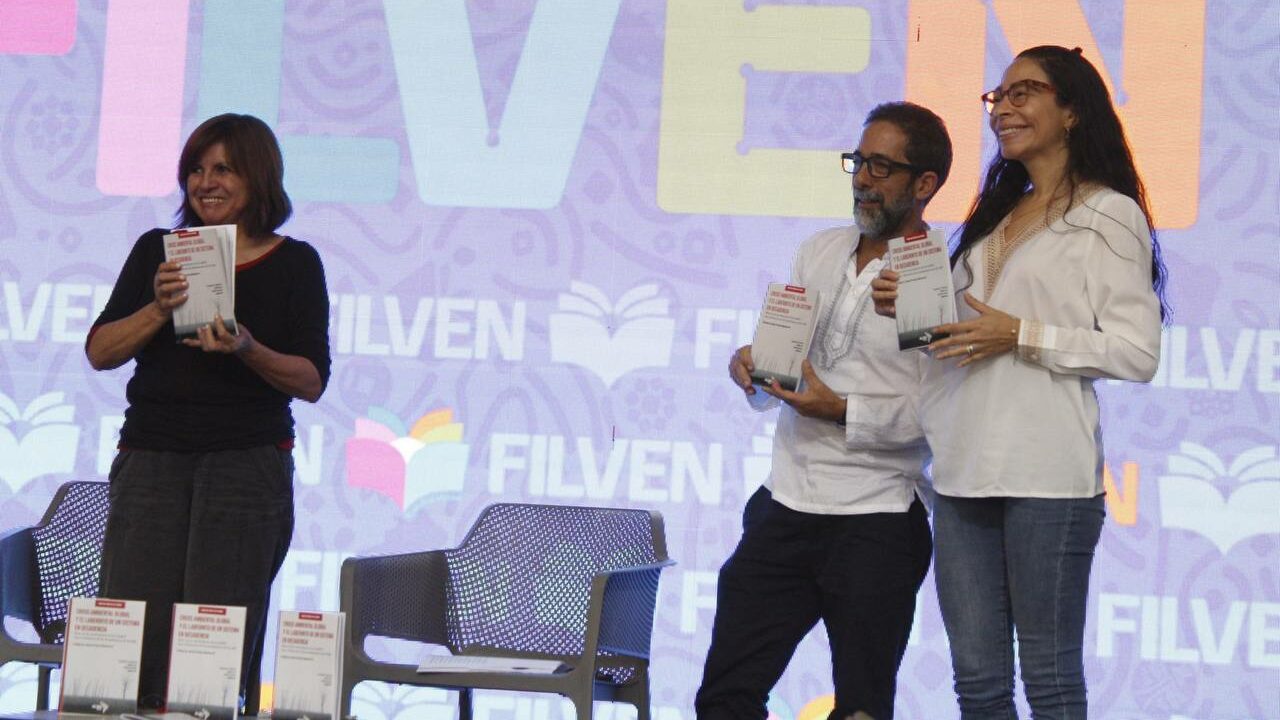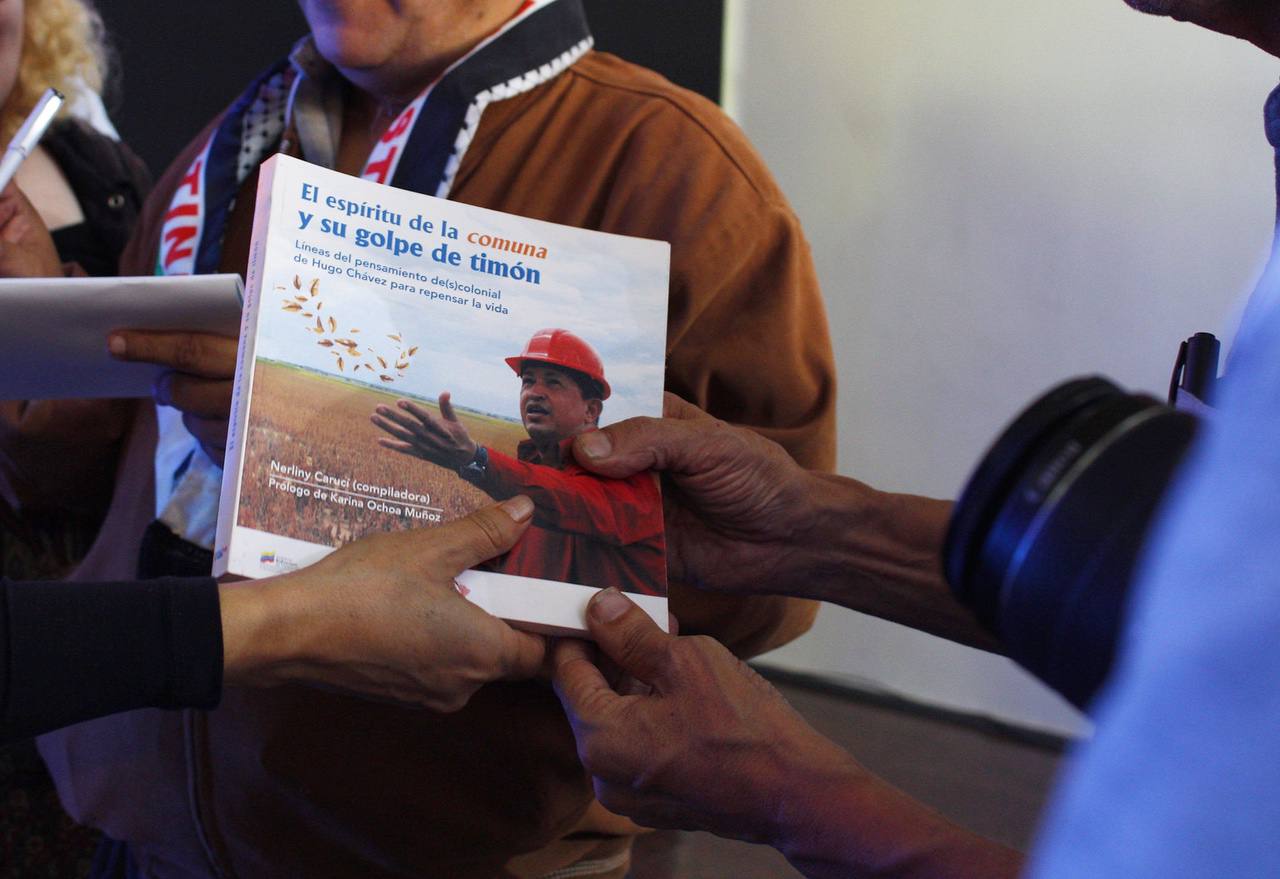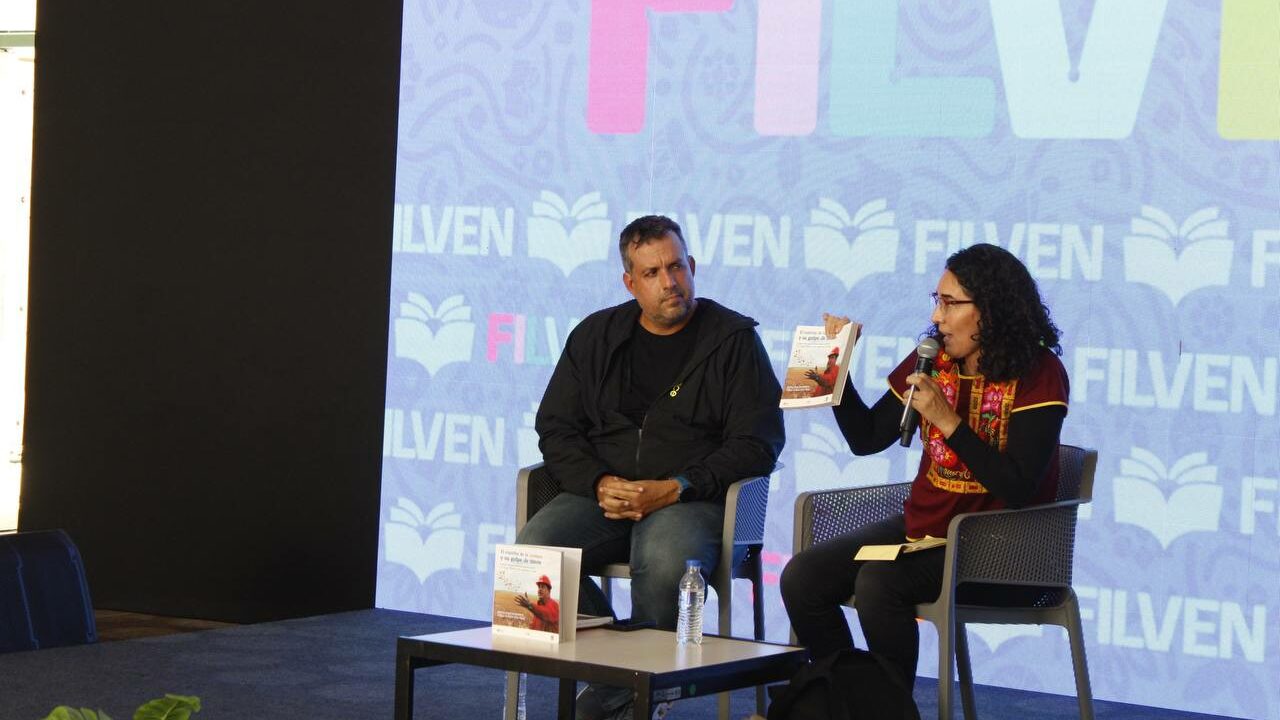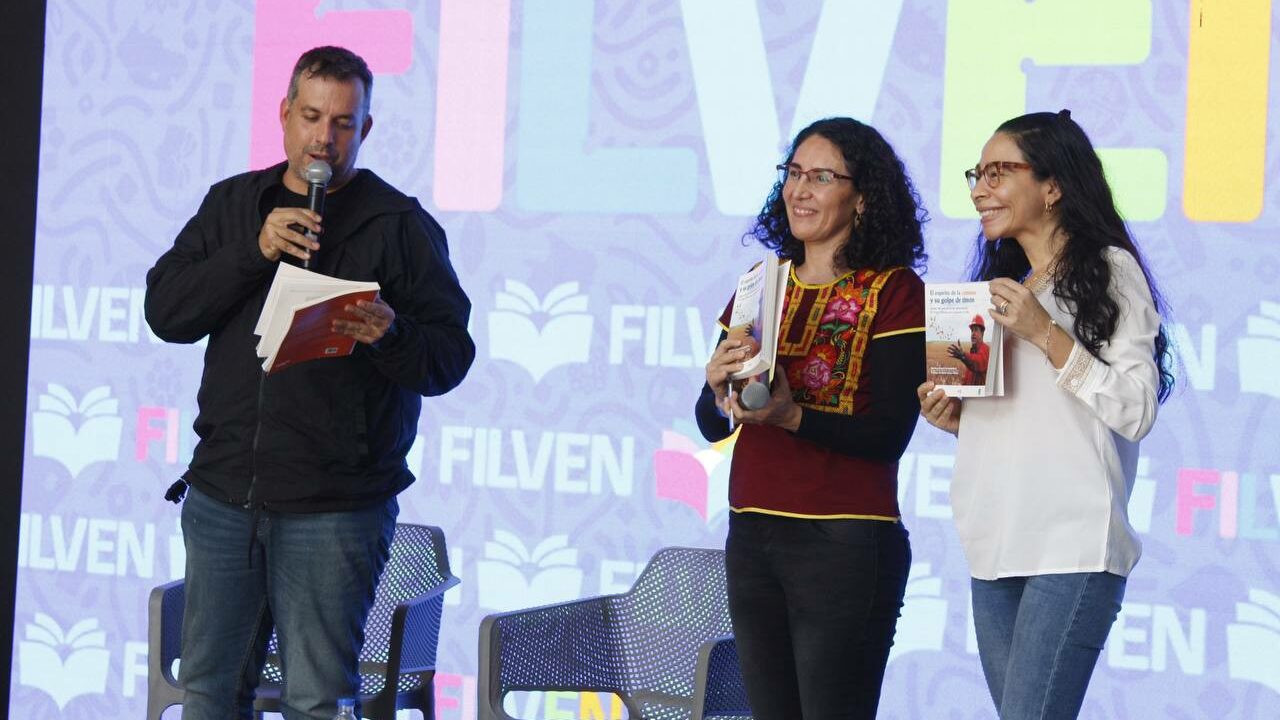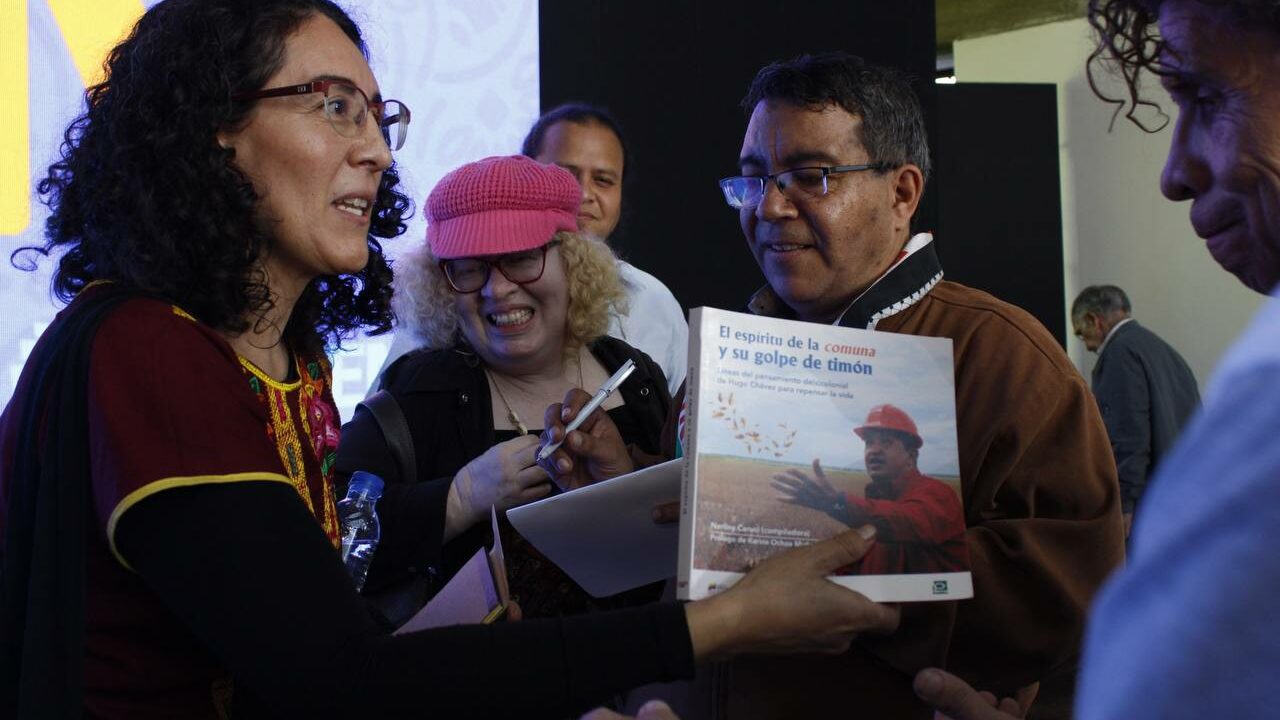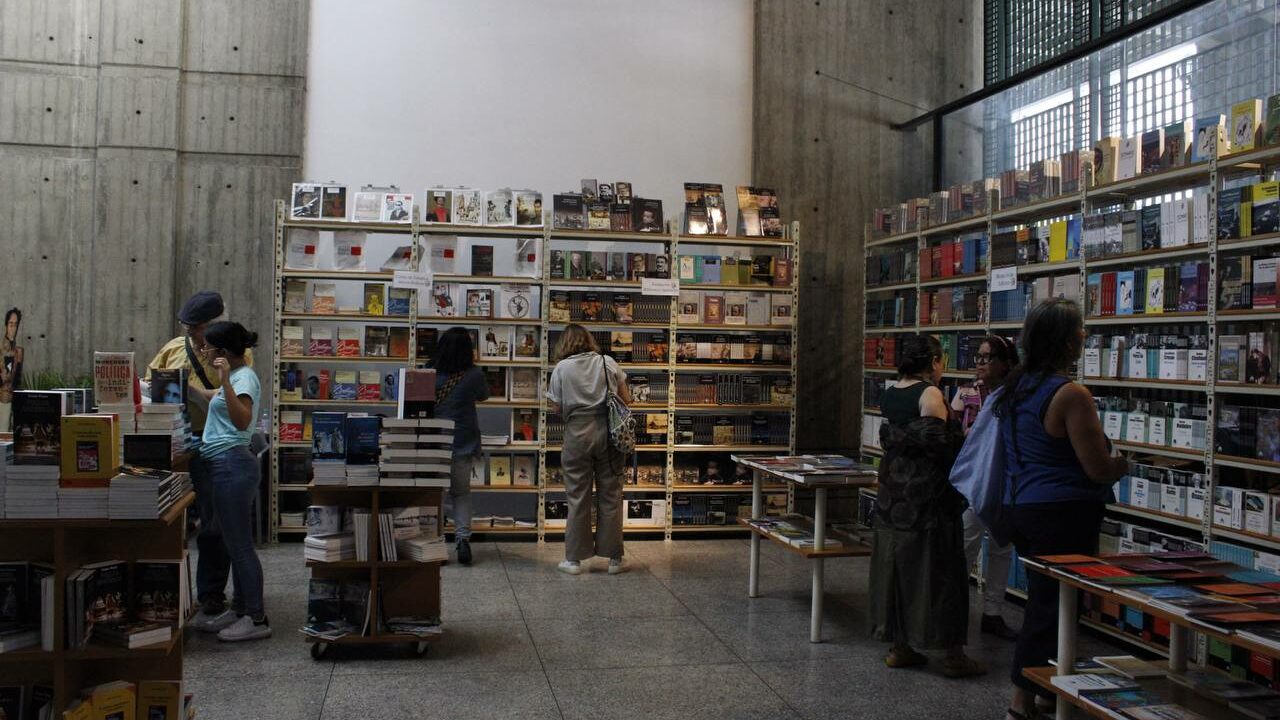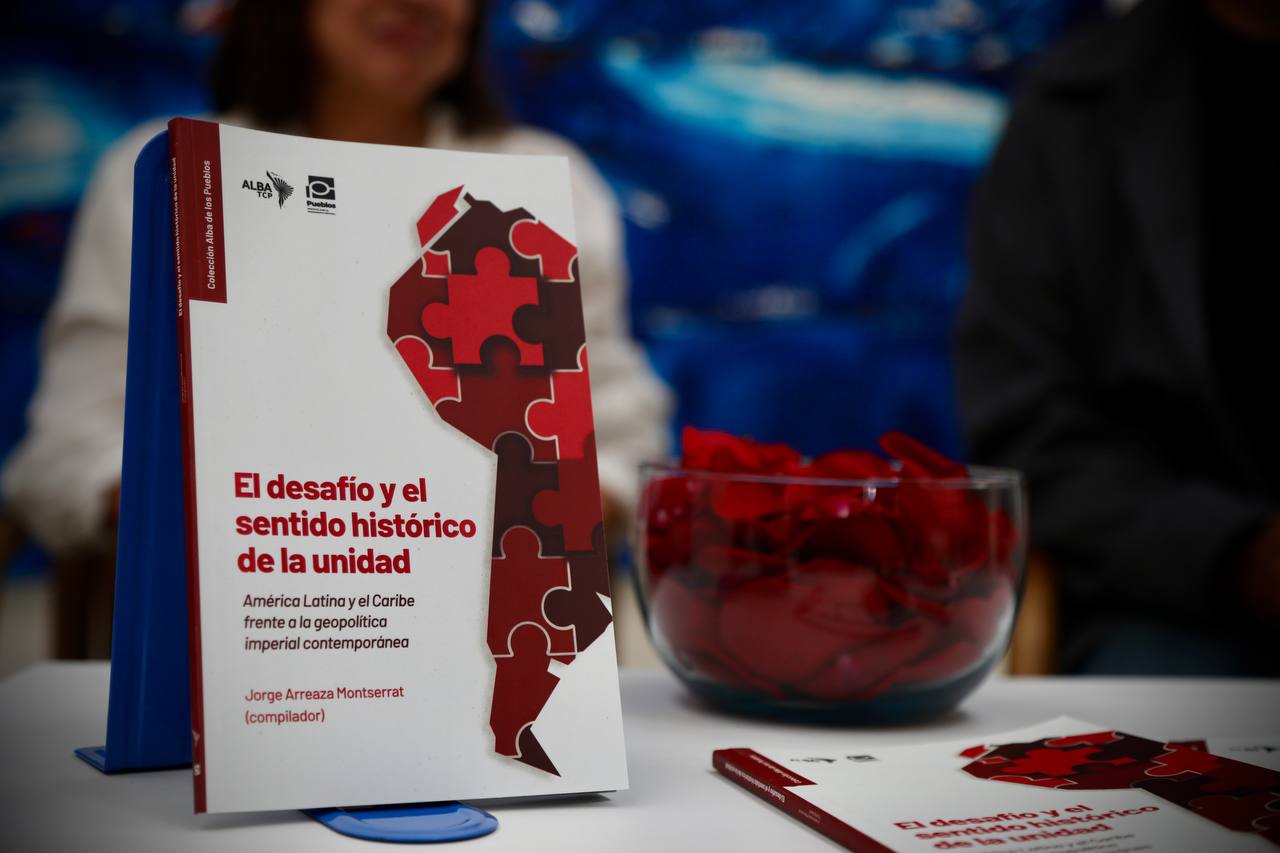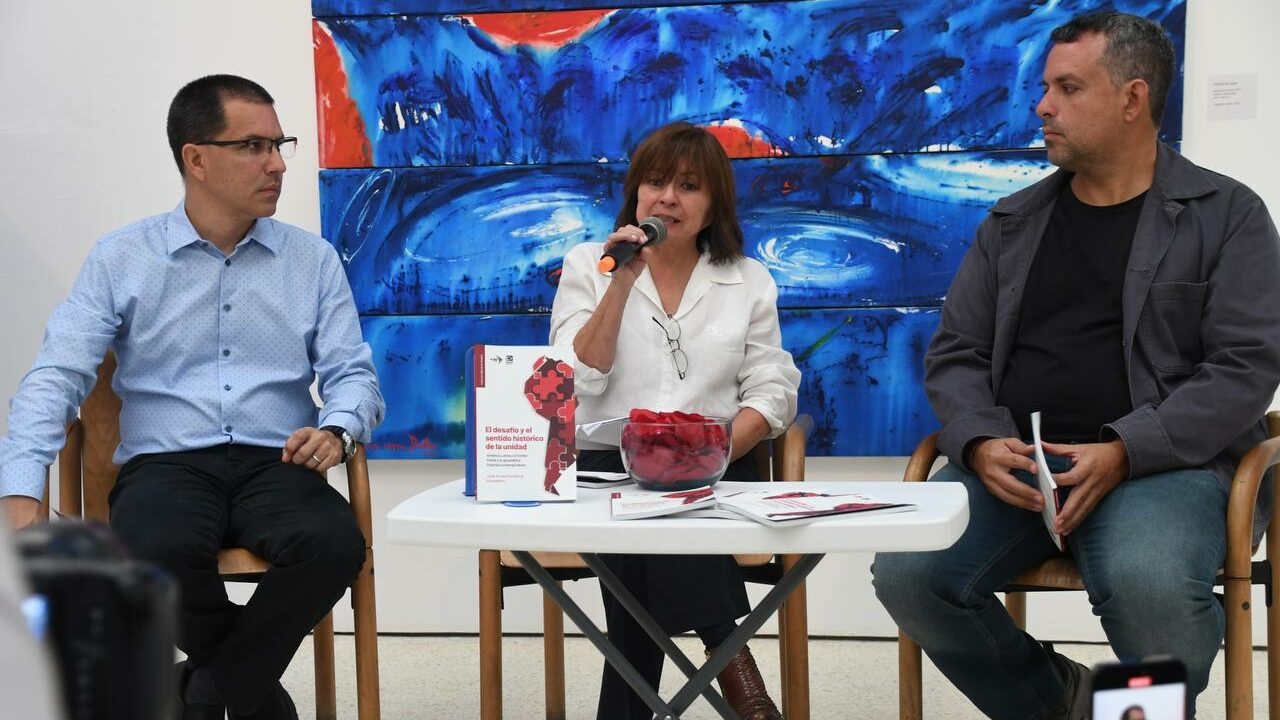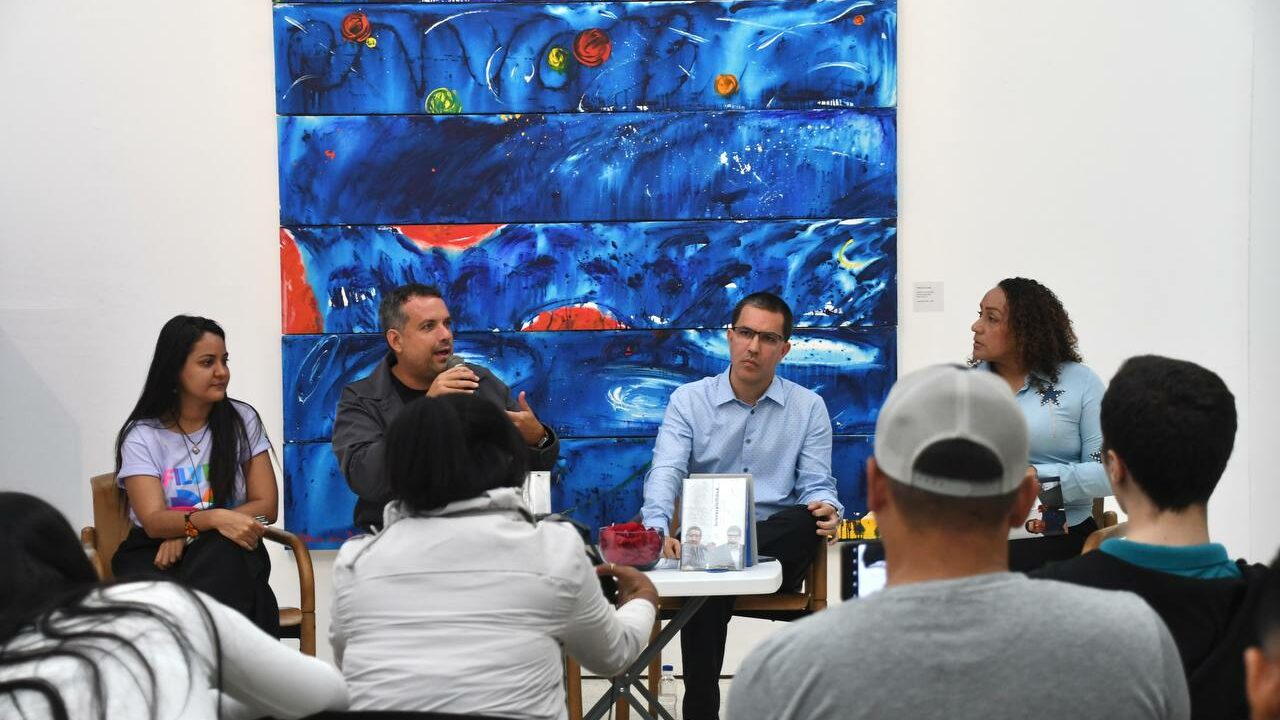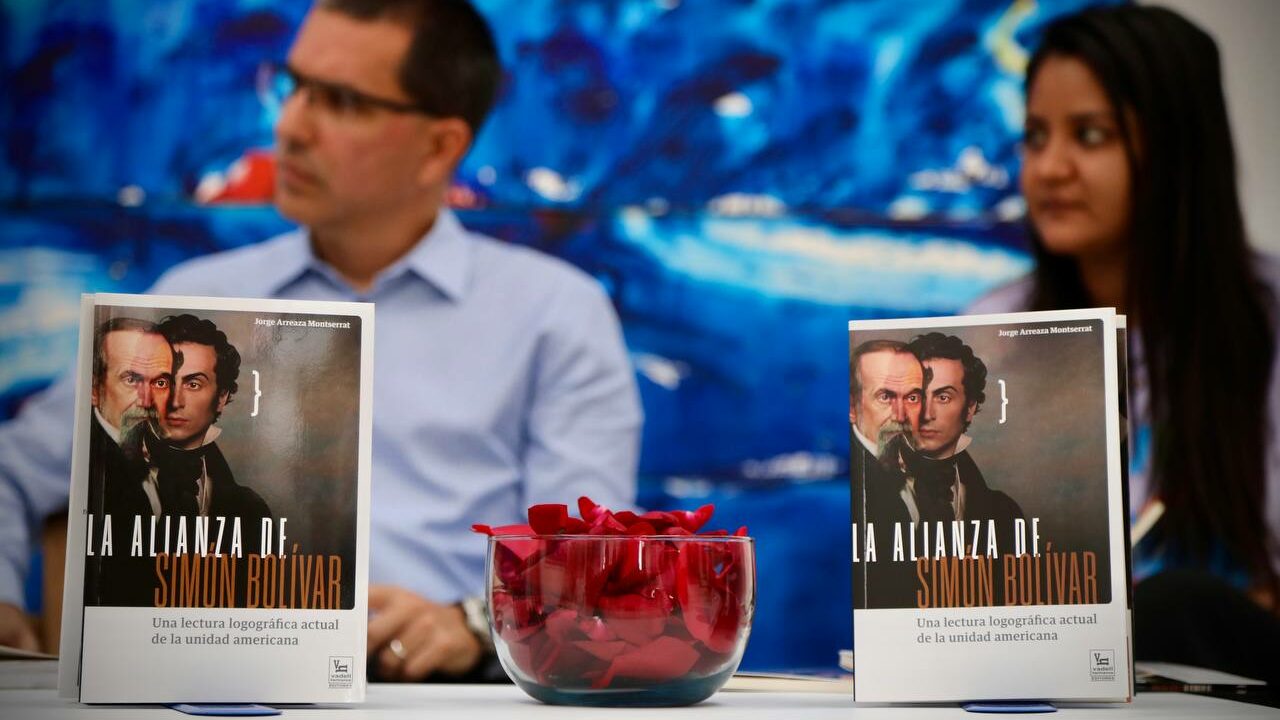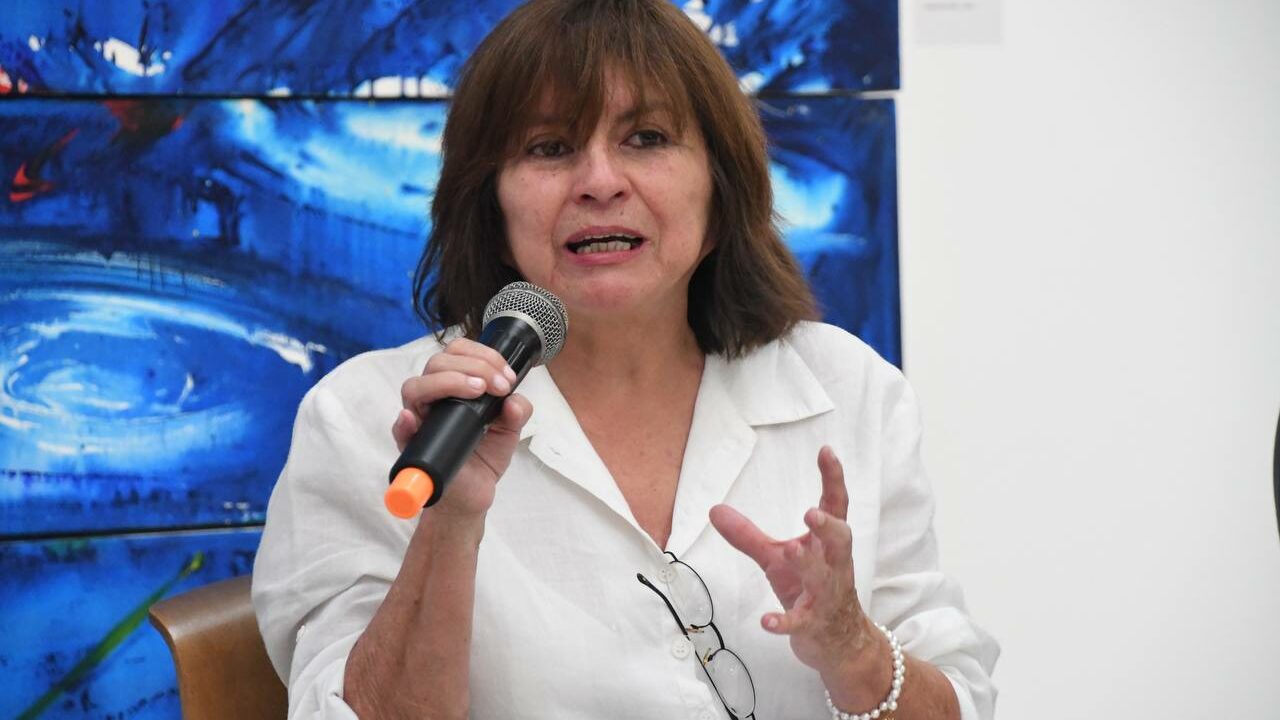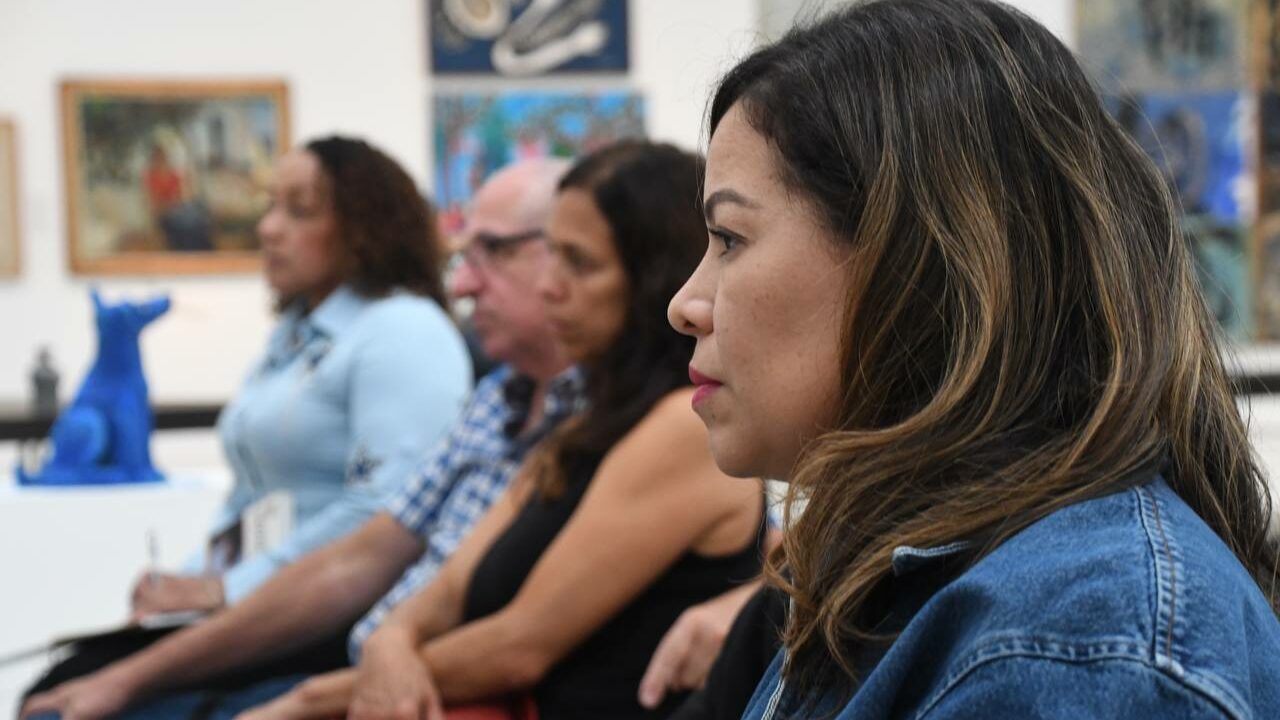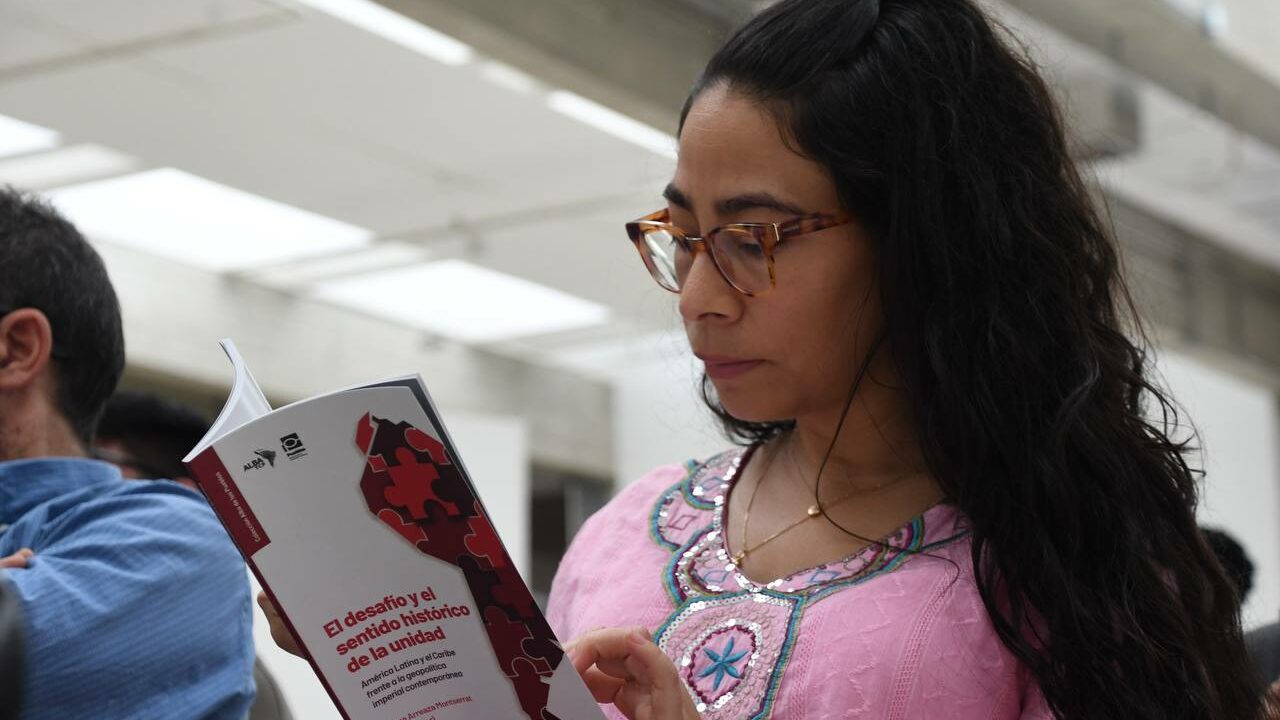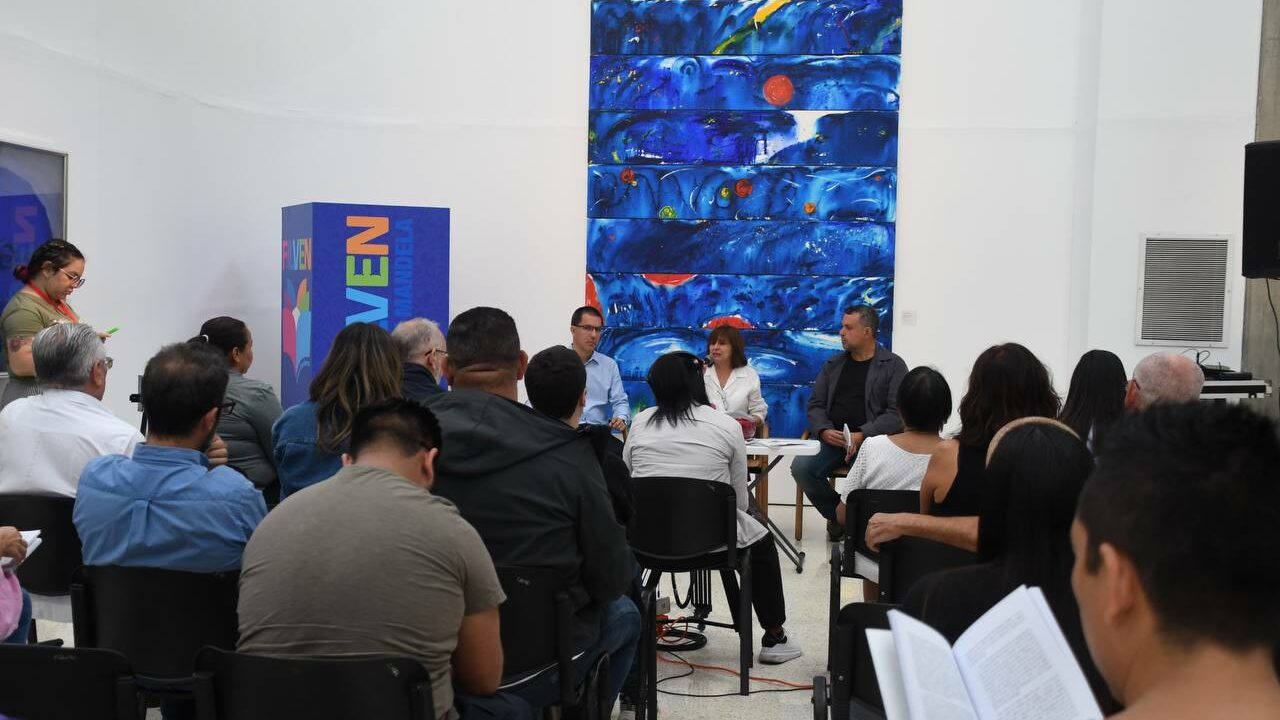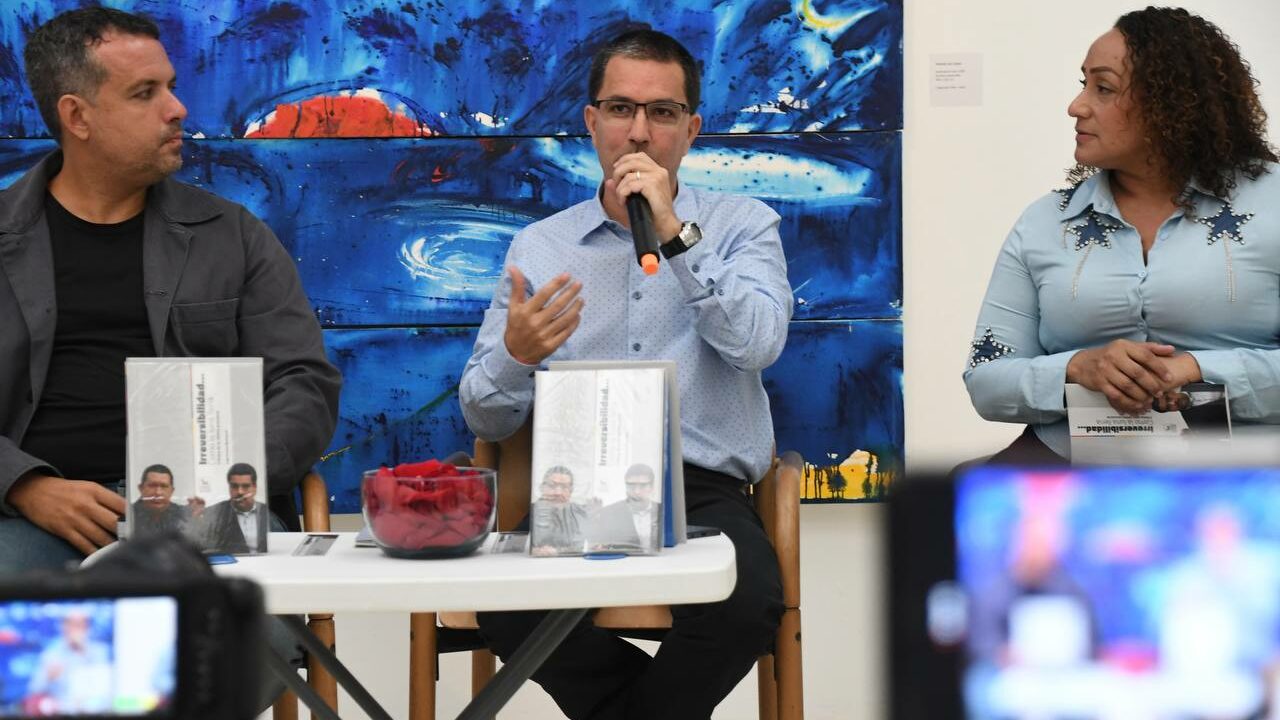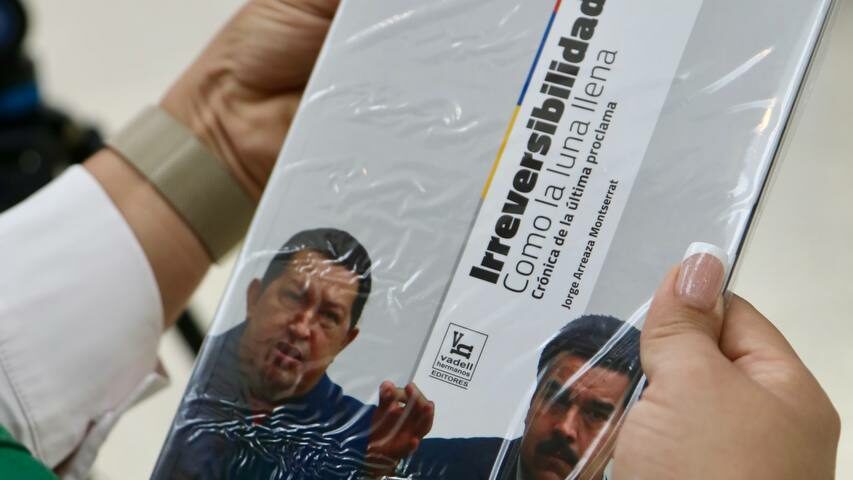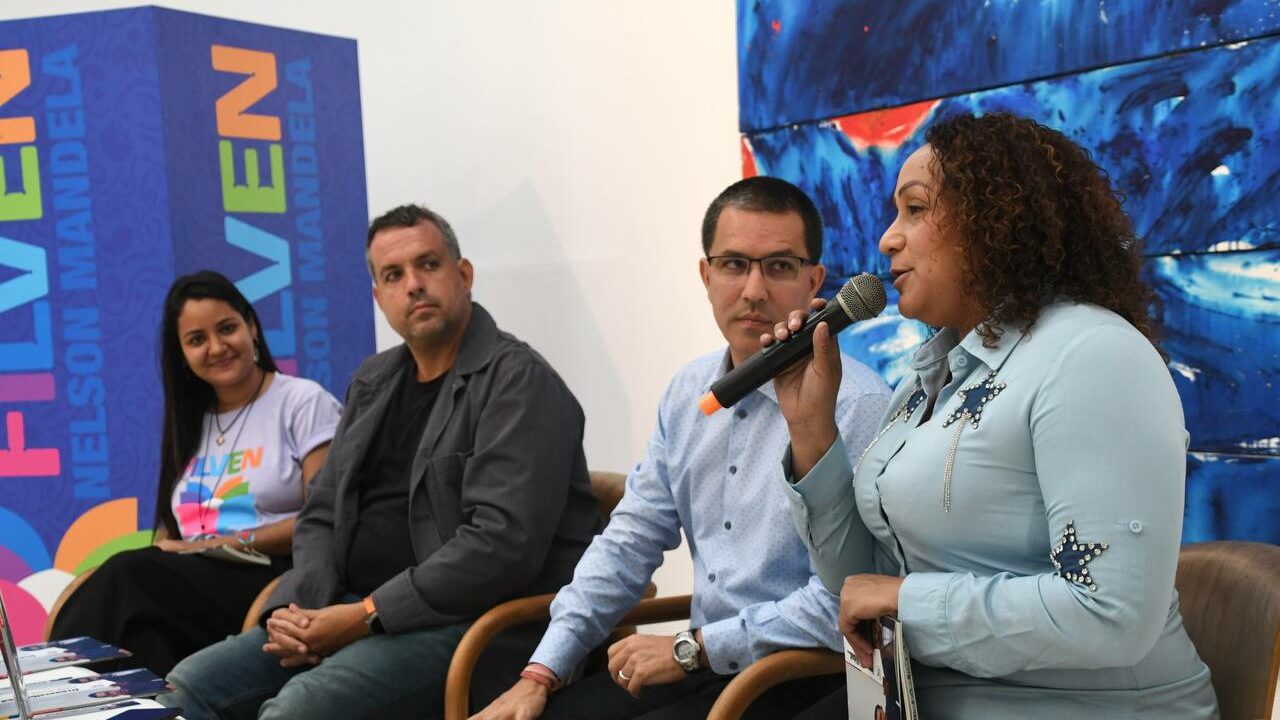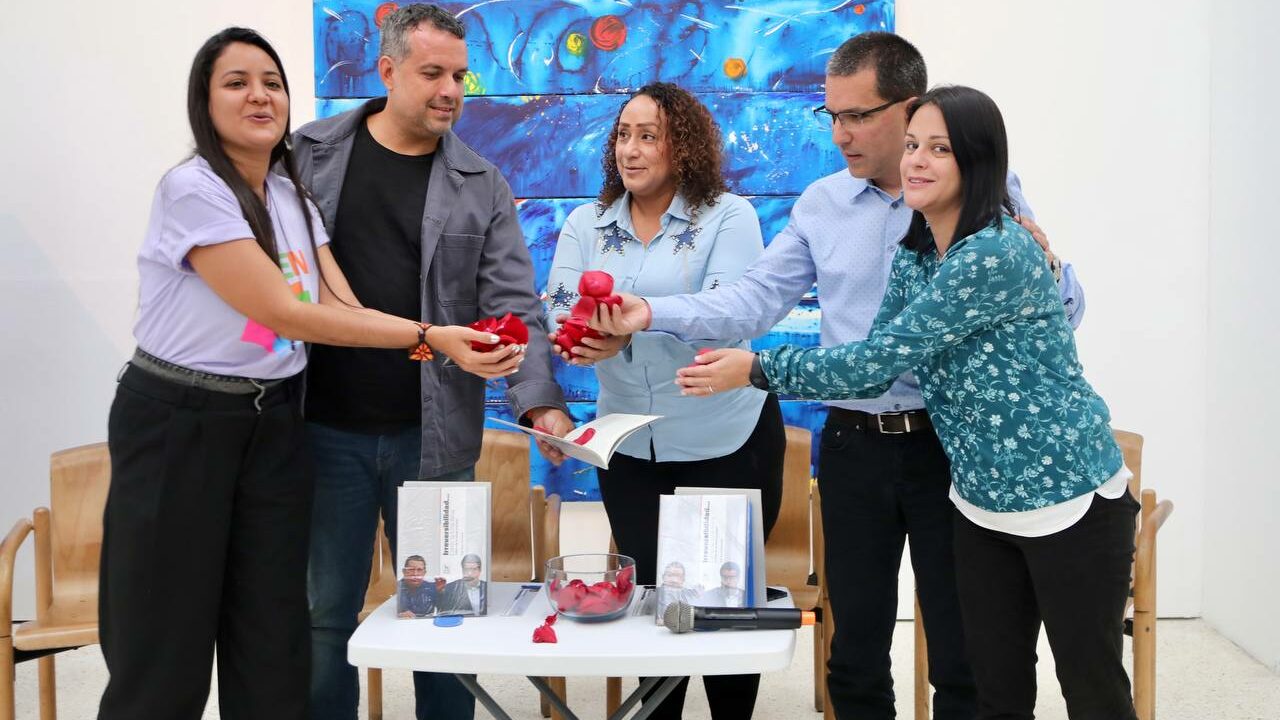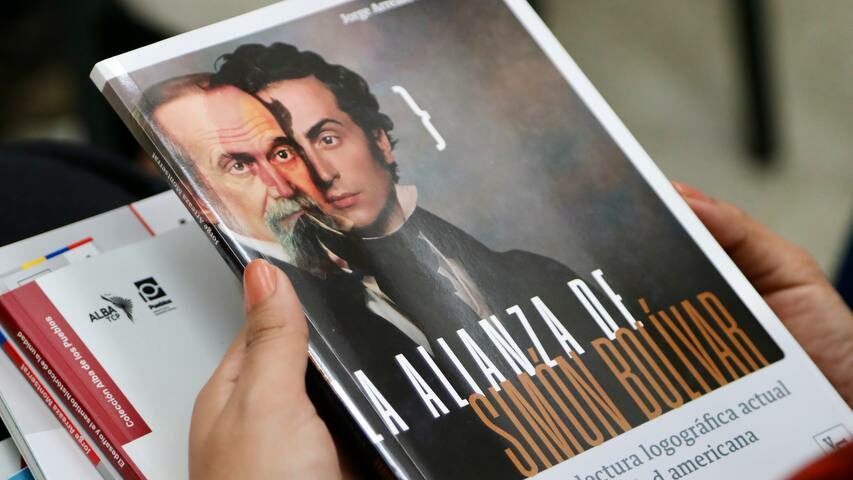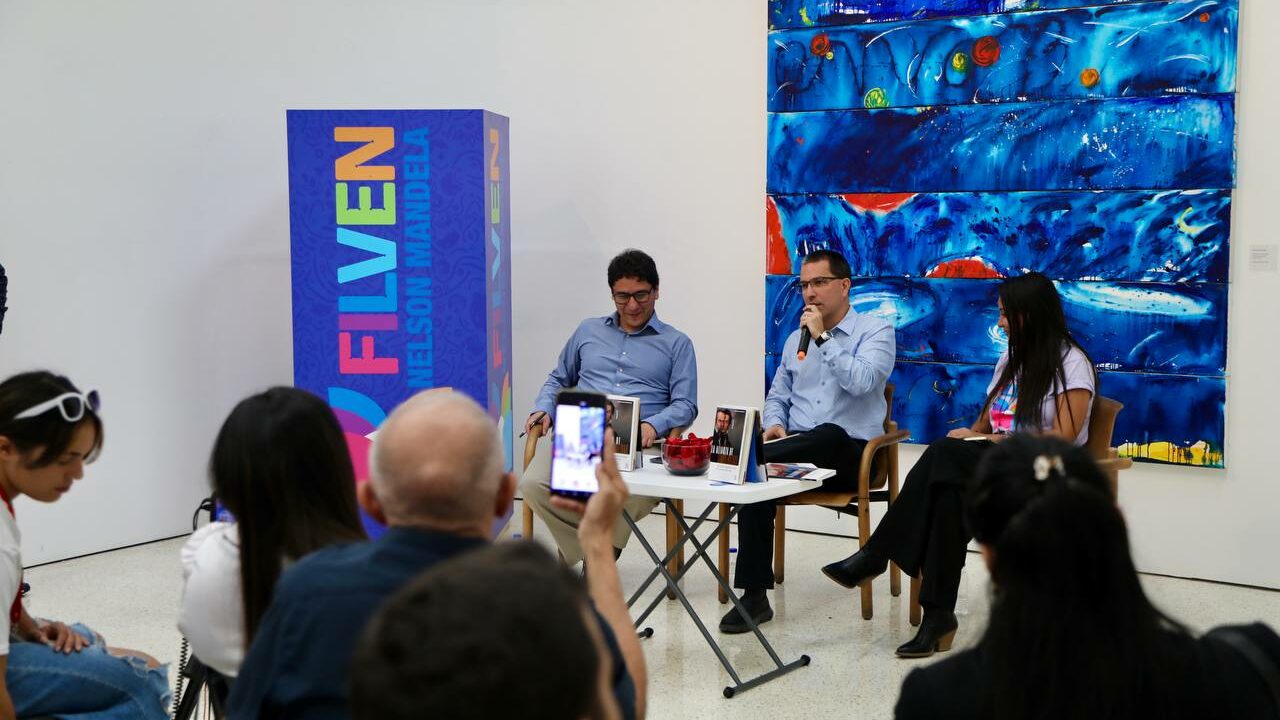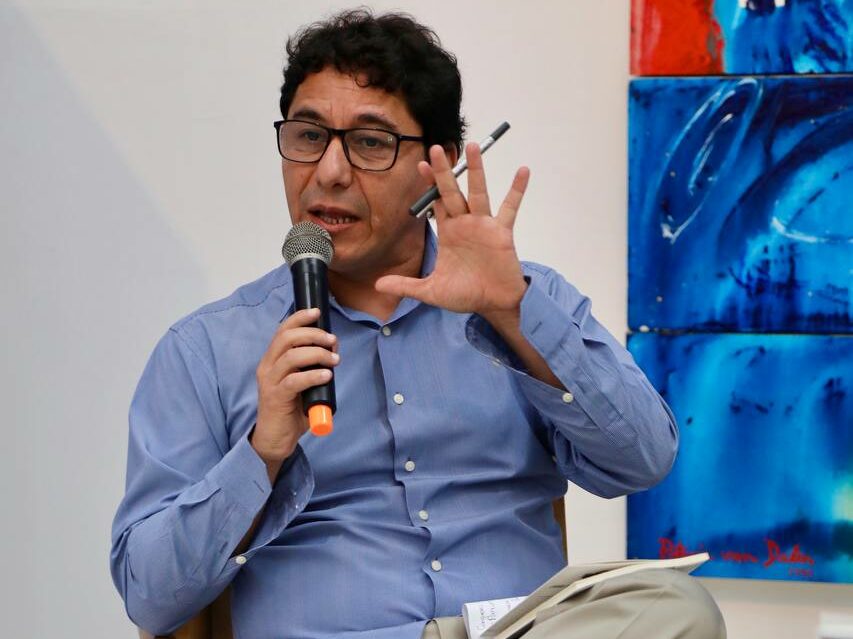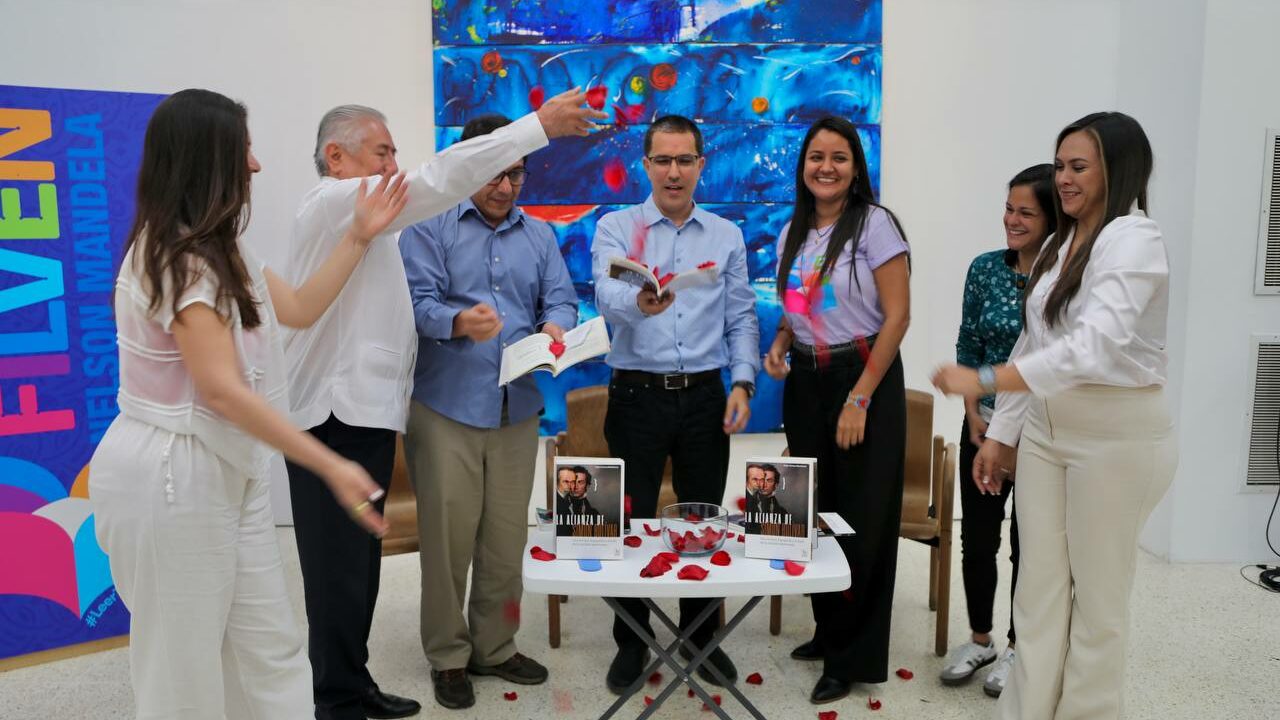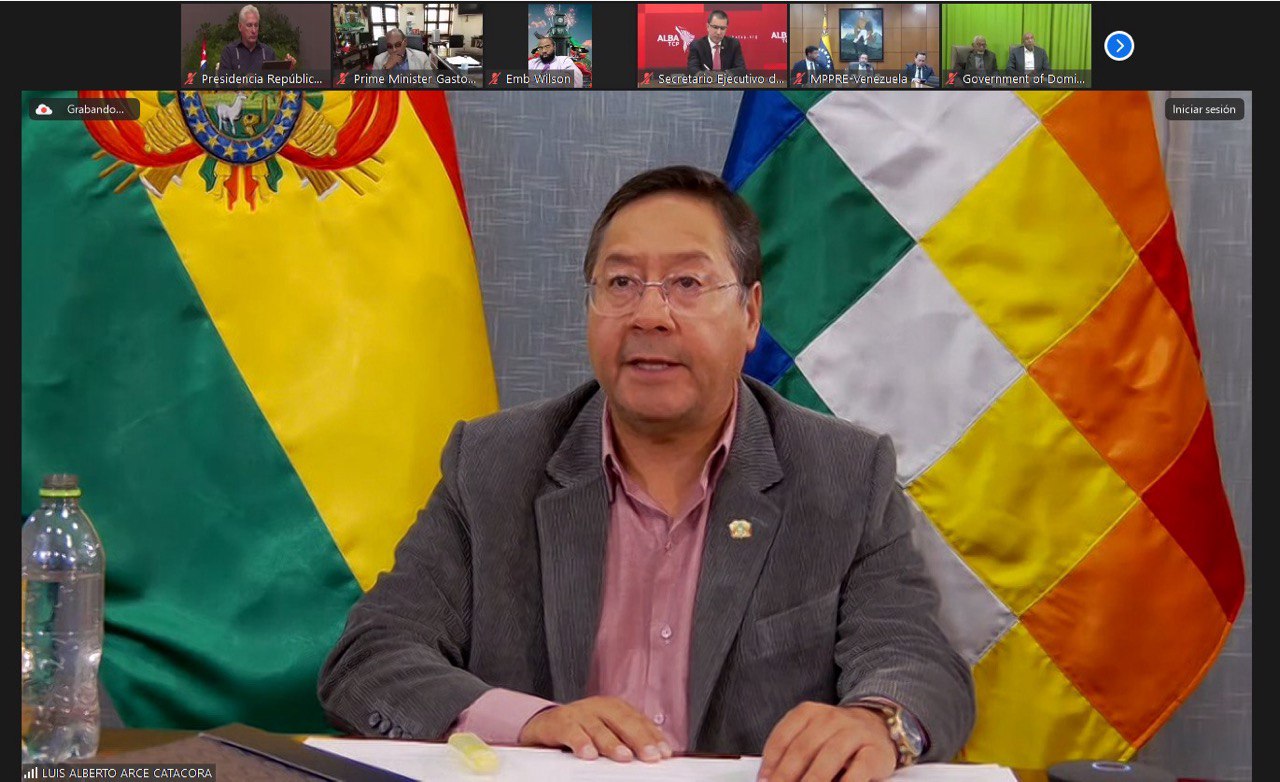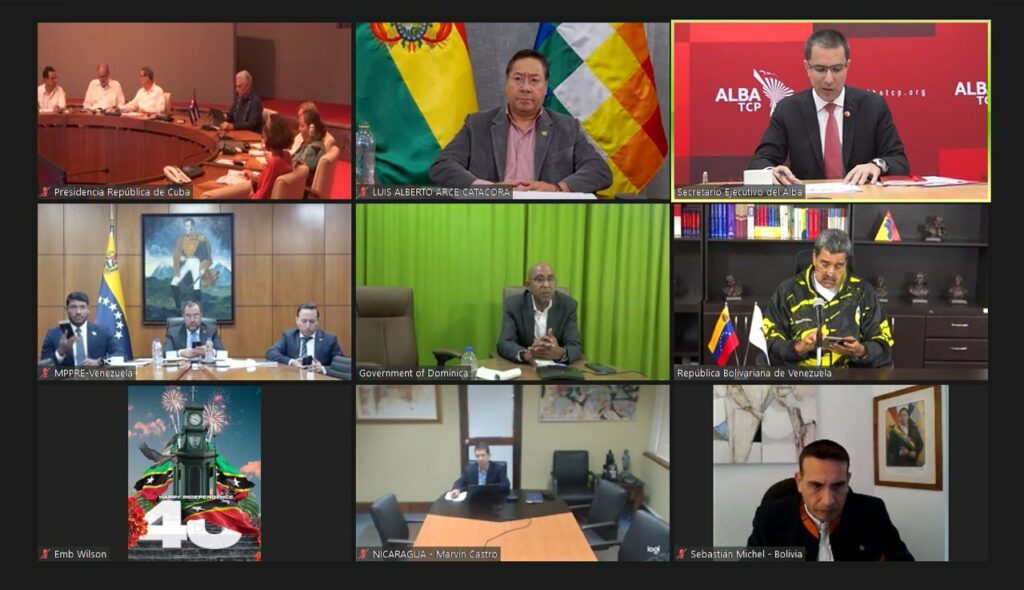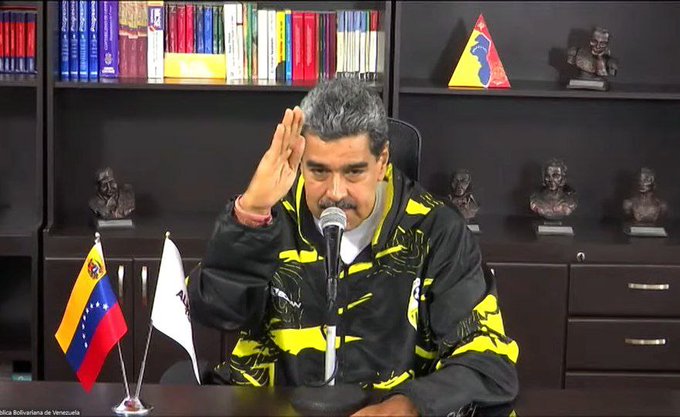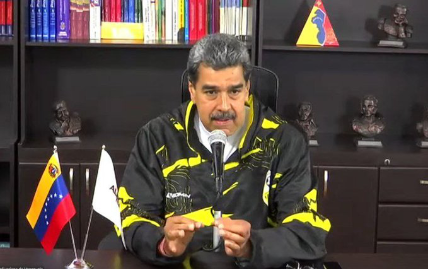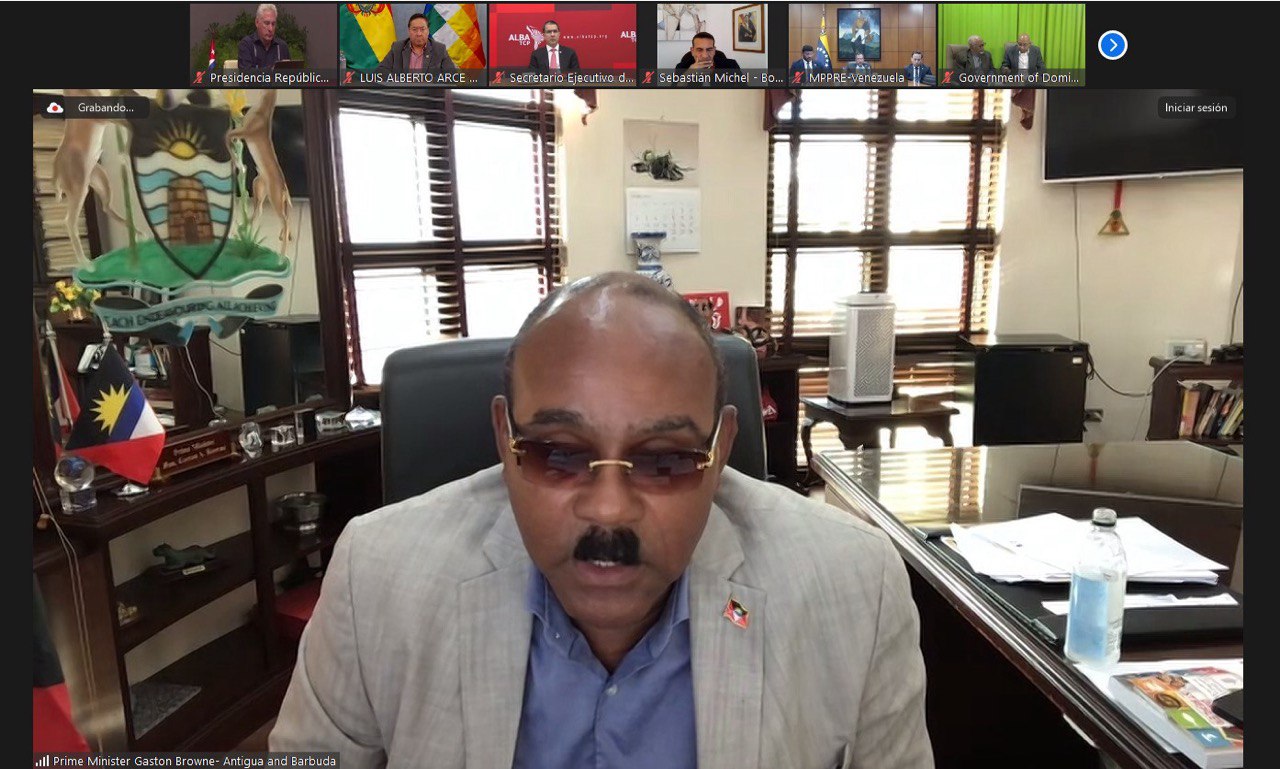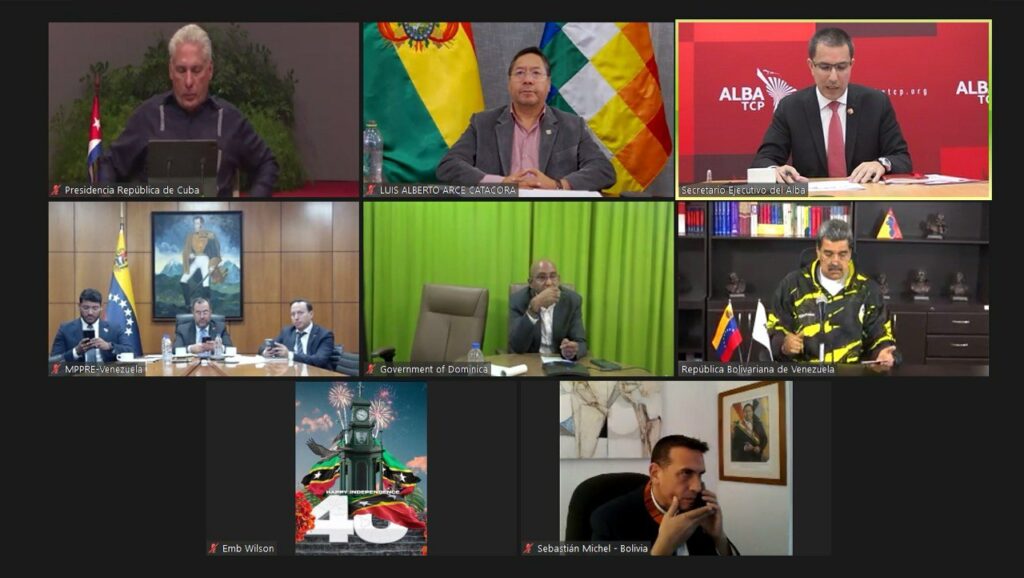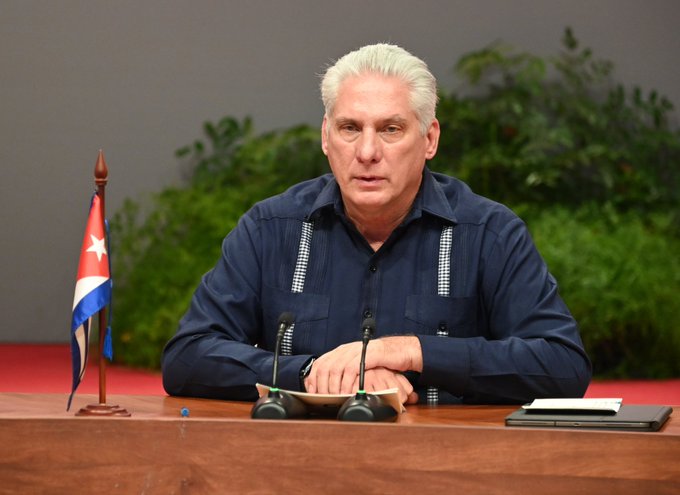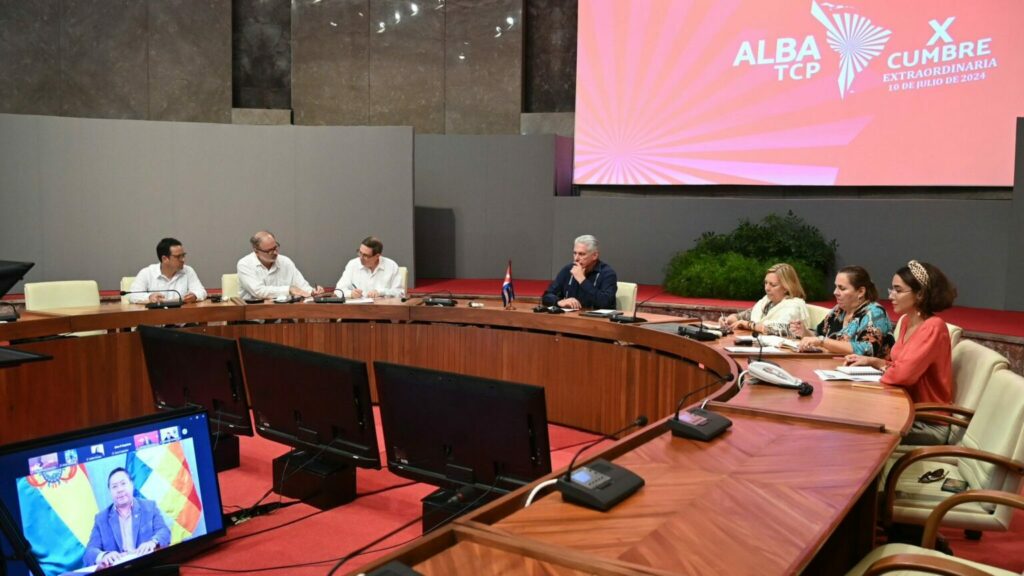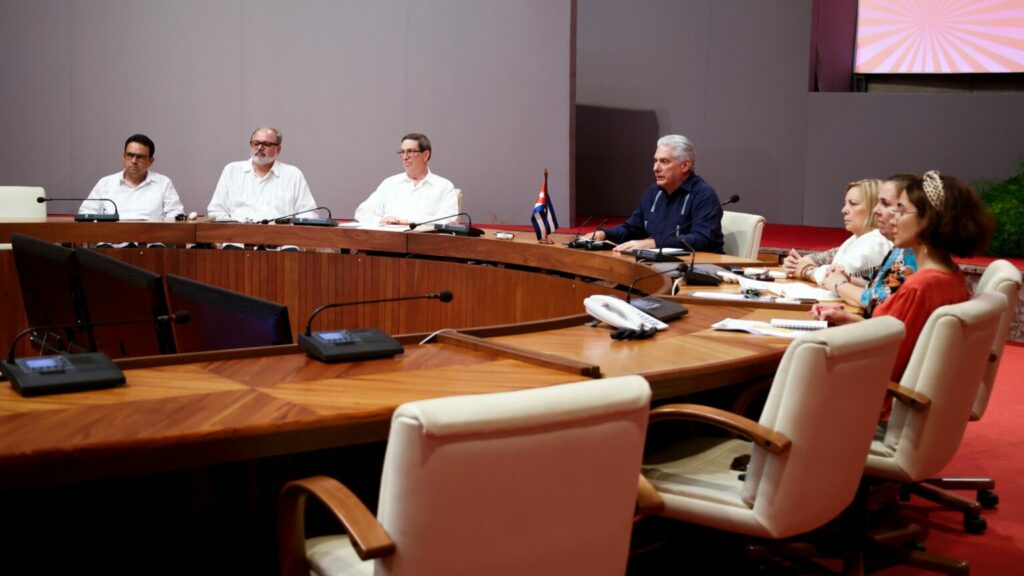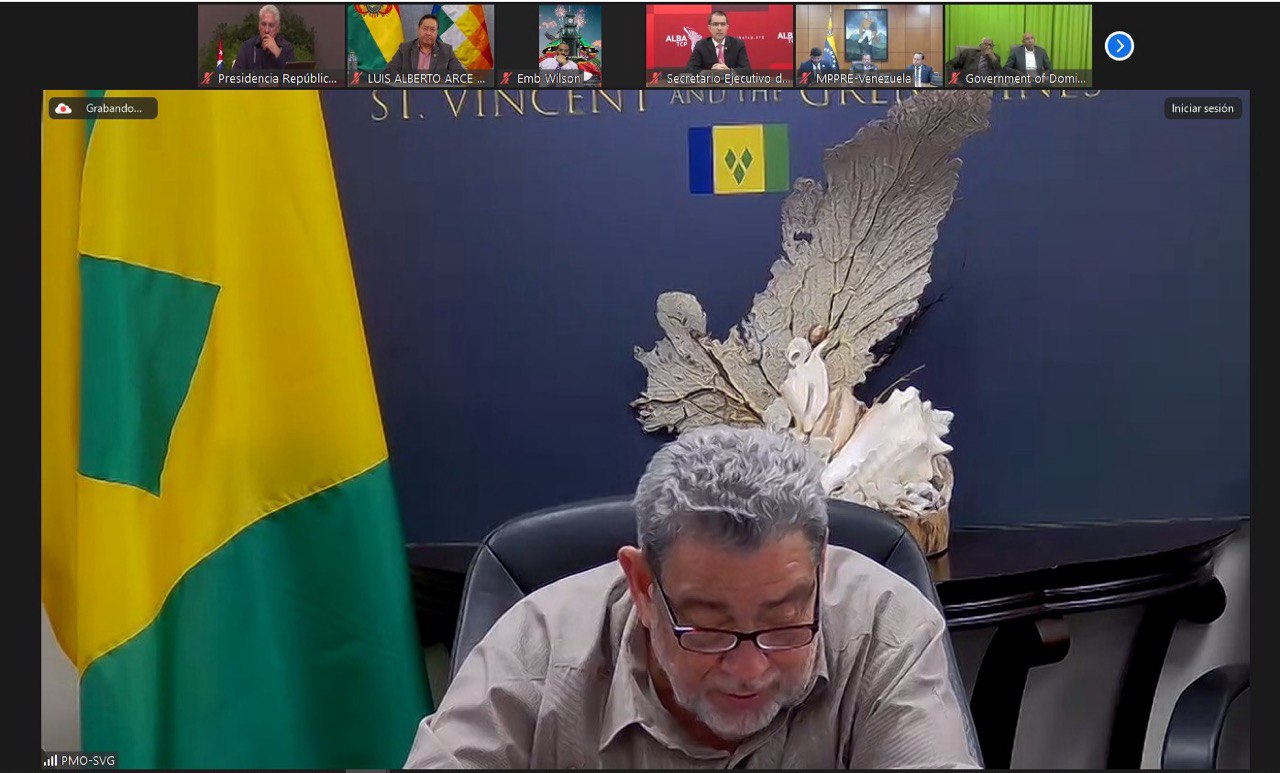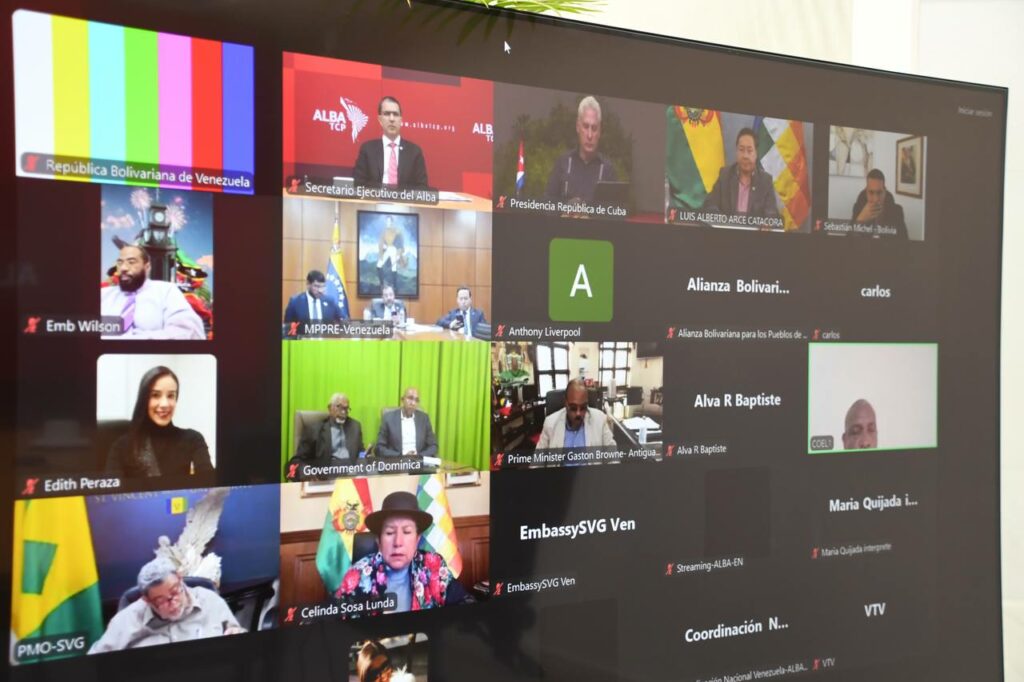Caracas, July 23, 2024.- The Executive Secretary of the Bolivarian Alliance for the Peoples of Our America-Peoples’ Trade Treaty (ALBA-TCP), Jorge Arreaza, said this Tuesday that the call for the 2nd Meeting for a World Social Alternative is “fundamental for us to determine what to do concretely,” as he affirmed that social movements have clarity and consensus in the diagnosis, “in who the enemy is, what their characteristics are, and in what phase they are.”
“I believe that the great challenge, the great task, is what we do together to overcome it” – the common enemy – highlighted in the Plenary session “World Social Alternative and current challenges” of the event, taking place in the “Simon Bolivar” Hall at the Bolivar Theater in Caracas, until this Wednesday, July 24.
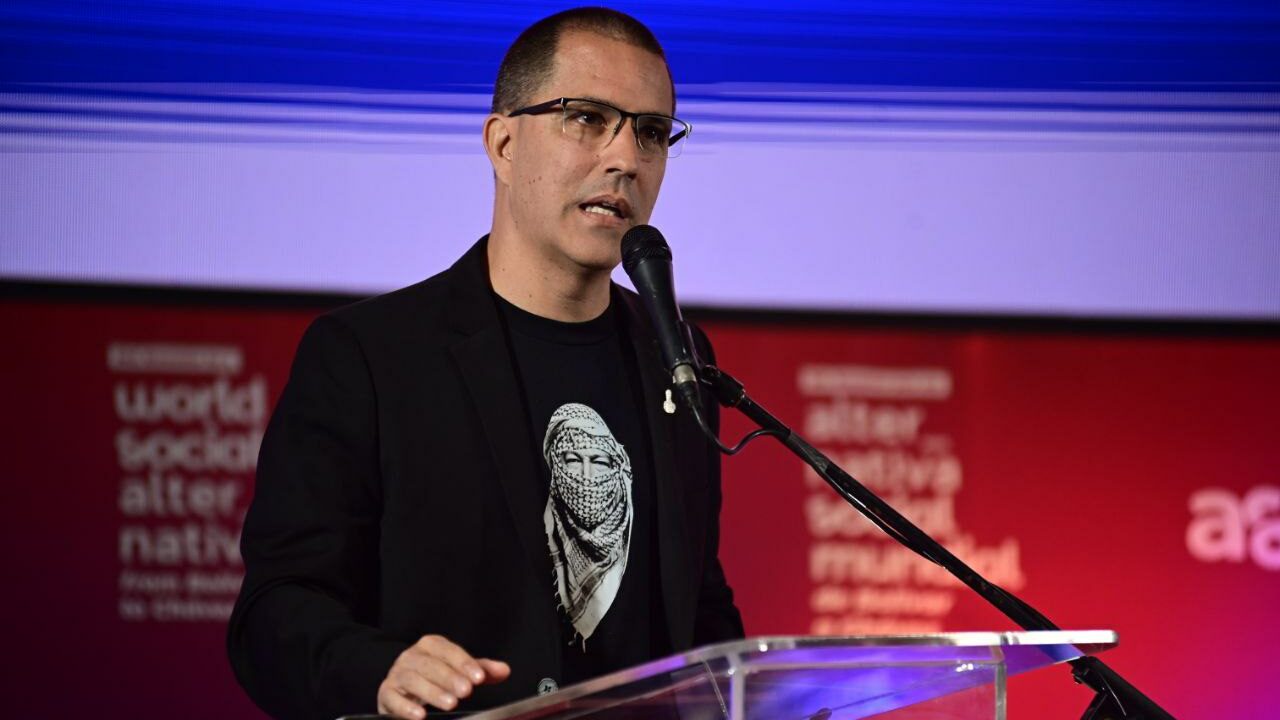
The ALBA-TCP speaker indicated that “our peoples are in resistance, but how do we move from this to the offensive phase?” therefore, he insisted on the call to achieve common agreements or minimum consensus and for the revolutionary governments in power in some of the countries of the Alliance to guide their policies in a consensual direction, in these assemblies of the World Social Alternative, with social movements and peoples of the world, along with small parties in resistance in countries hegemonically dominated by capital and bourgeois liberal democracy.
Arreaza summarized that the purpose is to generate a definitive document in which “we all feel identified, a tool of struggle that identifies us, to generate a common program of minimum agreements that allows us, from using it as a flag, as a shield against the bullets of repression, to implementing public policies in our countries, municipalities, communes.”
“We cannot stand just waiting for the empire to fall,” he reflected.
Digital Warriors
The journalist and intellectual Atilio Borón, from the Network in Defense of Humanity in Argentina, raised the need to “become digital warriors”; otherwise, the task of coordinating and organizing social movements opposing imperialism worldwide will be almost impossible.
He said that a more active attitude is required and “we must believe that we can and should be producers of news. This is fundamental, because we are in a communication war and we have to be warriors, we cannot just be news consumers.”
Borón pointed out that in order to resist and reverse the situation, a common strategy must be developed, “which we must build and this forum is one of the fundamental spaces to build it.”
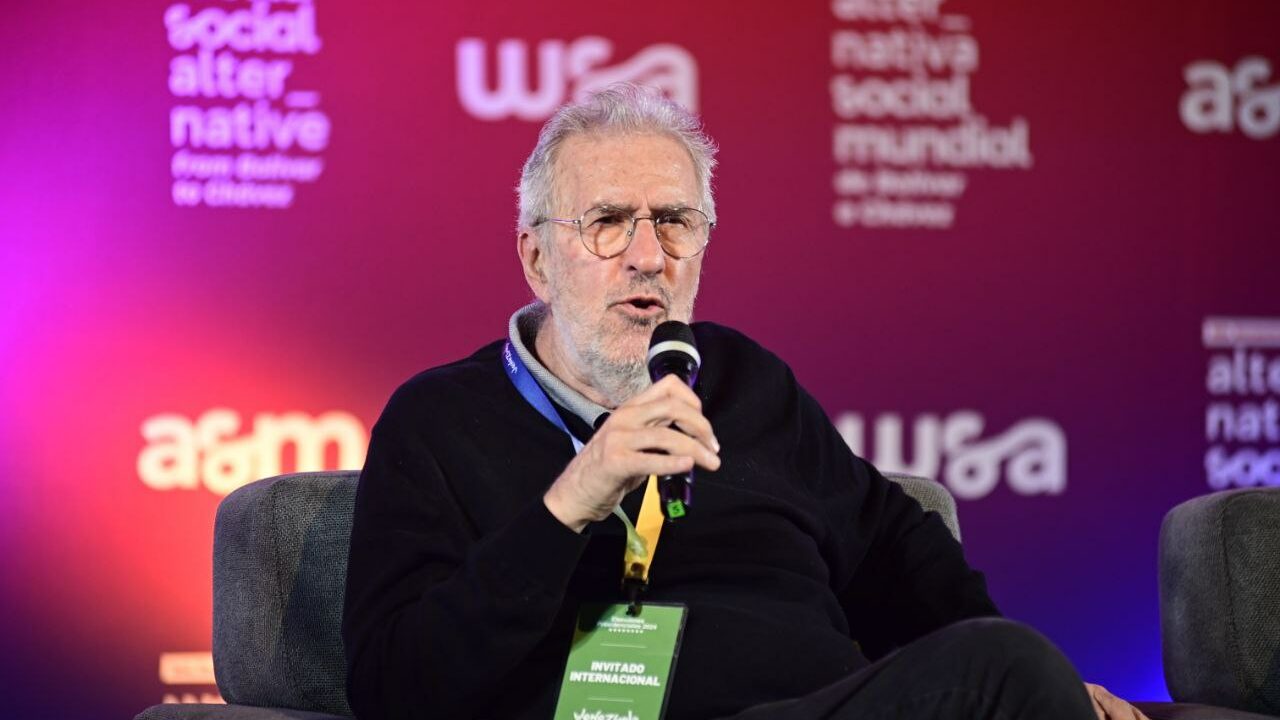
Vijay Prashad, director of the Tricontinental Institute for Social Research and representative of the International Assembly of Peoples, which brings together more than 200 political and popular movements from around the world, urged to believe in socialism because it is the only salvation for the planet and to create representation for people who are oppressed by international capital or multinational bourgeoisie, such as peasants.
“We have to be social in order to build something better than what we already have today,” he exhorted, while diagnosing that the global North has become hyperimperialist and an example, 75% of weapons are in the hands of NATO countries (North Atlantic Treaty Organization); and “that’s why they don’t want to build bridges (of dialogue, conciliation, peace), they only know how to destroy them.”
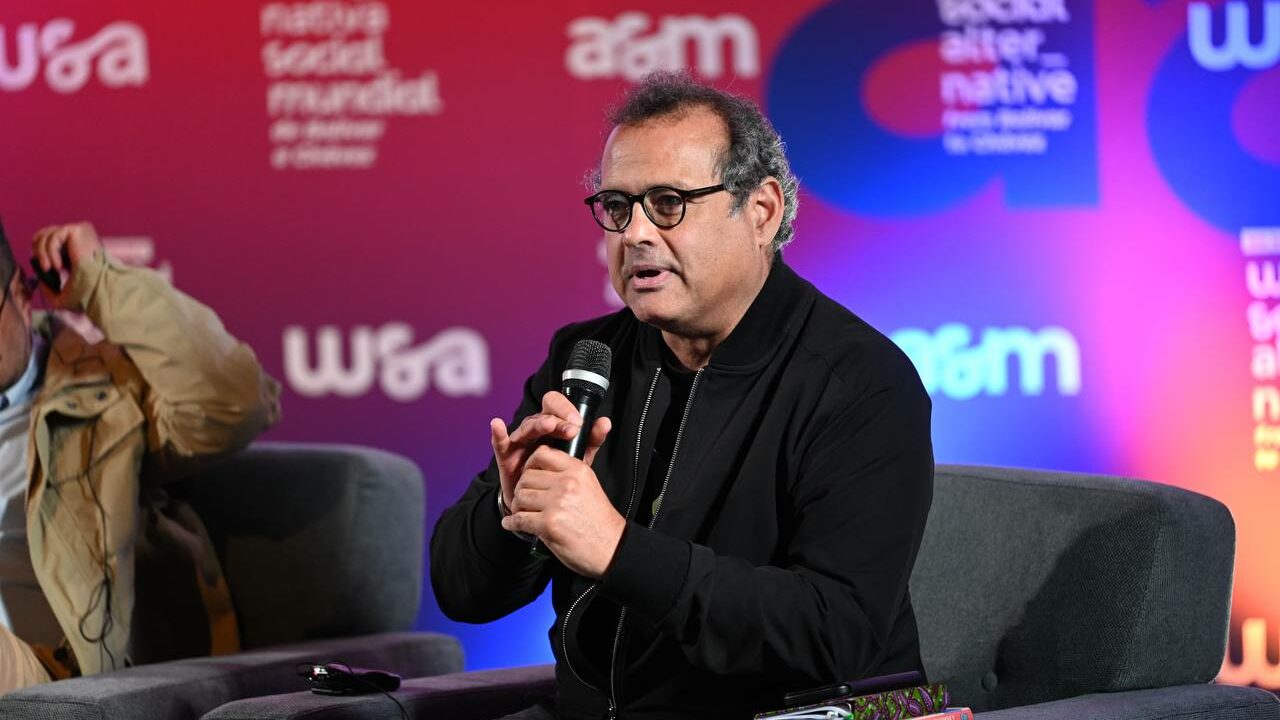
The People’s Power Minister for Foreign Affairs of Venezuela, Yván Gil, identified the two threats and challenges that social movements have faced for centuries; first, colonialism in its various forms and now neocolonialism, which is not only the cause of all the state of deterioration, disaster, and inequities, but today presents itself as a new even more powerful threat, with a greater hunger for plunder.
“Imperialism is the second major element. It is what motivated the emergence of the Bolivarian Revolution, which is anti-imperialist, anti-colonialist, an element that unites us and gives us a sense of struggle to all working classes in the world (peasants, students, workers),” he pointed out.
He emphasized that from Venezuela, Commander Hugo Chávez made the proposal for the construction of 21st Century Socialism as an alternative to confront these two great threats “that we have on the horizon, which are the origins of all the evils we suffer in our nations.”
